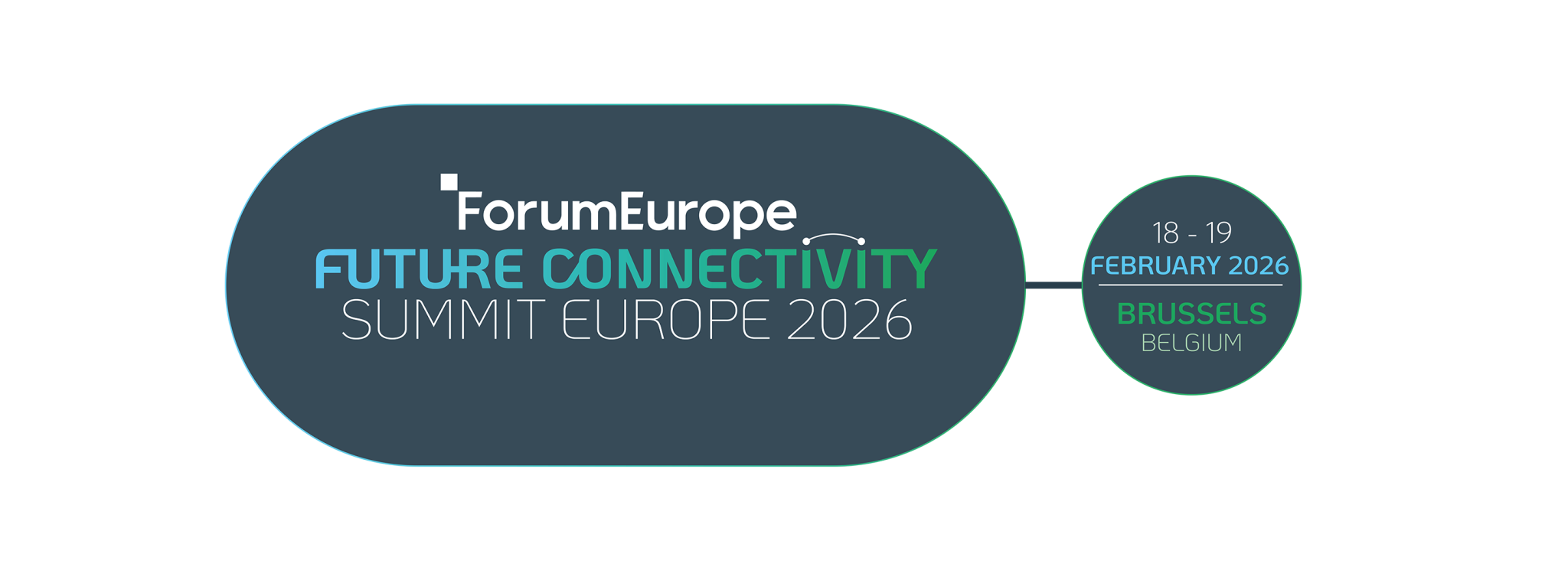
Bringing together senior leaders from industry, government, and technology, the Summit served as the definitive forum to shape the future of European connectivity and digital transformation.
Replacing the former European 5G Conference and European Connectivity & Competitiveness Summit, this new event marked the beginning of an exciting new chapter. It expanded the conversation beyond 5G deployment and the roadmap to 6G to also examine emerging connectivity technologies and the strategic implications of the forthcoming Digital Networks Act. Particular attention was given to how these developments could strengthen Europe’s competitiveness, stimulate innovation, and reinforce strategic autonomy.

The Digital Networks Act: Connectivity & Industrial Productivity

Status of 5G Deployments and Markets

Financing the Future: Consolidation & Competition

Secure Connectivity: Safeguarding the Digital Decade

6G Roadmaps and Standardisation

Satellites, NTNs & Hybrid Connectivity

Mission-Critical Connectivity: Defence & Emergency Comms
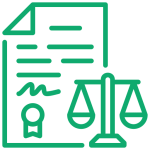
The Future Vision: Cooperation & Integration
The full programme for the event will be available shortly. Please click here to be kept informed.
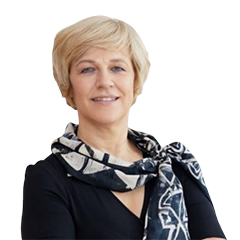
Renate Nikolay is deputy director general at DG Connect. Before that, she was head of cabinet of Vera Jourova, the European commissioner for justice, consumers and gender equality. Before that, she led the Unit of interinstitutional and international relations in DG Justice between 2011 and 2014. She has also been an advisor in the cabinet of the first High Representative and Vice President Catherine Ashton where she led on the relations with the European Parliament in setting up the European External Action Service (EEAS) and on relations with Asia, in particular China. Before that, she was a member of the cabinet of Trade Commissioners Peter Mandelson and Catherine Ashton from 2004 to 2009.
She started her career in the European Commission in the department for trade in November 2003 dealing with the accession negotiations of Vietnam to the World Trade Organisation and with the trade policy committee with the member states. She has also been a diplomat in the German Permanent Representation in Brussels and worked as private secretary to the German G8 sherpa in the German Ministry of Economics. Nikolay holds an M.A. as a Fulbright Scholar in Washington DC and a B.A. in law from the Free University in Berlin.

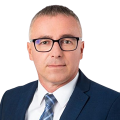
Mr Mišmaš has been serving as the Director of AKOS since 2023. His extensive professional background is rooted in over two decades of industry experience. Prior to his role at AKOS, the elected incoming BEREC Chair 2026 held various positions in telecommunications, smart metering, and the automotive industries, most recently as R&D Director in the private company Iskra Mehanizmi and before that as R&D Director in the company Iskraemeco. Marko Mišmaš holds a Master’s degree in Electrical Engineering from the University of Ljubljana.


Alessandro Gropelli is the Director General of Connect Europe, the voice of the leading providers of connectivity networks and services in Europe. Alessandro is a technology and political affairs leader, trained in Europe and overseas. At Connect Europe, he leads the Team and represents the Association. He is also a Board member of GeSI, the Global Enabling Sustainability Initiative.
Alessandro previously served at ETNO, the former association representing leading telecom operators, in different positions. In the period 2018-2024 he was Deputy Director General: in this capacity, in 2023-2024, he curated the transformation project ETNO+, which resulted in the launch of Connect Europe. In 2023 he was named in the top 10 of Politico’s Power40 list as one of the most influential operatives in European affairs. In 2016-2018 he served as Director of Communications of ETNO and, back in 2013-2016, he was Head of Communications and Media.
Before joining the Association, between 2010 and 2013, Alessandro was European affairs advisor at Vodafone Group and vice-Chairman of the m-commerce Working Group of mobile operators’ association GSMA Europe. Prior to that, in 2009, he also worked in the Public Affairs team of Telecom Italia and as a public relations officer at the European Parliament.
Alessandro holds an Executive MBA from Copenhagen Business School (2021) and finalised executive education courses at the MIT (2018) and Berkeley Haas (2016). He graduated in public management from Bocconi University in Milan (2009) and concluded an education programme at the Hitotsubashi University of Tokyo (2008). He speaks English, Italian and French.

Europe’s digital future and the realisation of its digital ambitions depends on the rapid and equitable deployment of advanced connectivity. And connectivity itself is evolving. The convergence of 5G and mobile technologies with cloud, edge computing, fibre, and non-terrestrial networks is set to become one of the defining technical trends of the next decade. Increasingly, this convergence is recognised as a key enabler for achieving the goals of the EU’s Digital Decade 2030 strategy. This session will set the scene by examining the current state of play in the rollout of next-generation connectivity networks across Member States. It will explore how challenges such as uneven deployment, fragmented markets, and persistent investment gaps can be addressed, and why the rollout of high-speed wired and wireless infrastructure, including fibre, Wi-Fi, and 5G standalone networks, continues to lag behind targets. The session will open with the launch of Connect Europe’s annual State of Digital Communications Report, providing an update on the rollout of 5G and related digital technologies across Europe. A panel discussion will follow, assessing the current deployment landscape, identifying barriers to progress, and evaluating how close the EU is to meeting its gigabit connectivity ambitions.

Aude is a Director and an economist with nearly 20 years’ experience at the crossroads of technology, telecoms and regulation. She works for industry stakeholders on informing their economic and regulatory decisions and improving their policies and performance.
Her differentiating strength is her ability to connect the dots between market dynamics, regulatory shifts, technological disruption and societal expectations. She helps to translate complex and nuanced areas of policy and change into clear strategic implications for decision makers.
She has led and managed international projects for BEREC, the ITU, the World Bank, GSMA and national regulators, and has advised global tech companies and telecoms operators.
She currently serves on the board of directors of the think tank Renaissance Numérique and chairs the French chapter of the International Institute of Communications (IIC). Aude holds a PhD in Economics (Telecom ParisTech), an MPhil in International Economic Relations (Sciences Po Paris) and an MSc in Business Administration (SKEMA Business School, France).
Mentoring matters to her: she actively supports younger women in tech and policy, and she is drawn to anything that makes leadership more open and futureproof. When she is not travelling with family or rethinking how systems should work, you will probably find her at a concert or ballet, or quietly negotiating with herself about buying yet another beautiful notebook she absolutely does not need.


I graduated with a degree in management and leadership from SWPS University in Warsaw. I have had a long career in journalism. I began working in this profession in the 1990s, when I joined “Gazeta Wyborcza.” I later served as deputy editor-in-chief of publications such as “Puls Biznesu” and “Businessweek.” I was editor-in-chief of the monthly “Forbes,” the weeklies “Newsweek Polska” and “Wprost,” and “Dziennik Gazeta Prawna.” I had the honor of co-hosting RMF FM’s “Kontrapunkt” and “Newsweek,” as well as managing the news portal pulsbiznesu.pl. I have moderated hundreds of debates, conferences, and panel discussions, and served on juries for numerous journalism awards.
After leaving the media industry, I became Managing Director of the Prime Speakers speaking agency and then Head of the Washington branch of the Atlantic Council think tank. I also served on the board of the Youth Achievement Foundation and served as President of the Polska od Nowa Foundation.

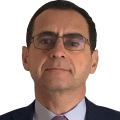
Miguel González-Sancho is Head of the Unit “Cybersecurity Technology and Capacity Building” at the European Commission and interim Executive Director of the “European Cybersecurity Competence Centre”, covering various EU files on cybersecurity including: funding for research and deployment, network of Security Operations Centres, cyber emergency fund and reserve, 5G and supply chain, certification, threat detection and response, relations with the European Cybersecurity Agency-ENISA.


Robert Mourik is a BEREC Vice-Chair in 2024 and assumed the role of BEREC Chair for 2025 on 1 January. He joined the Commission for Communications Regulation (ComReg) as Commissioner in 2019 and has almost thirty years’ experience in the telecoms sector, as an industry executive and as a Government official. Prior to joining ComReg, he worked for Cubic Telecom, a new entrant in the automotive IoT space, where he was responsible for all wholesale activities. Robert spent almost 10 years in Telefonica as the European Regulatory Strategy Director at their corporate HQ in Madrid and as Strategy Director in Ireland. He also worked for Vodafone Group, as its head of their Brussels Office and in the regulatory department in Newbury, UK. In 1991, Robert began his career in the Dutch Department for Transport and Telecommunication, and from 1994 until 1999, he served as Telecom Attache at the Netherlands’ Permanent Representation in Brussels. He was a Member and Chair of the Council Telecoms Working Group in 1998, when the first telecom regulatory package was adopted. Robert was born in the Netherlands and studied Economics and Public Policy at the Erasmus University in Rotterdam and the University of Hull (UK).


Maarit Palovirta is the Deputy Director General of Connect Europe, the voice of the leading providers of connectivity networks and services in Europe. She leads the association’s policy and organisational strategy, overseeing its work on a variety of policy and regulatory topics as well as its international outreach. She is also a Board member of CTAM Europe.
Before joining the Association as a Director of Regulatory Affairs in 2019, Maarit was a Senior Manager of European Affairs at the Internet Society where she acquired strong experience in internet development as well as extensive links with global internet and tech stakeholders. Prior to that, she engaged with governments across EMEA as a public sector business development manager at Cisco Systems for six years. Maarit has also developed a strong service-oriented, hands-on profile acquired in leading public affairs consultancies in Brussels.
Maarit has an academic background from the College of Europe, London School of Economics, King’s College London and SciencesPo Paris and has completed executive education courses at IESE. She speaks Finnish, English and French.


Before joining Wi-Fi Alliance in 2008, Kevin enjoyed working with early stage technology start-ups on business strategy consulting and technology market research. Kevin is a veteran of the United States Army, where he served as a Captain in the Infantry. Kevin holds a BS in Computer Science from the United States Military Academy at West Point and an MBA with a specialization in Entrepreneurship from The University of Texas at Austin. He lives with his family in Austin, Texas.

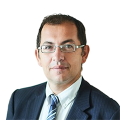
Luigi Ardito is currently working as Director of government affairs for Europe, Middle East and North Africa at Qualcomm and drives the Qualcomm spectrum and regulatory policy agenda in Europe and MENA dealing with various government entities and industry organizations.
Prior to joining Qualcomm, Luigi worked for over a decade at Sony Corporation both in Japan and in the UK. Luigi also gained professional experience at France Telecom and at the Italian Public Broadcaster RAI.
Luigi has extensive experience in the Media and Telecom industry as well as the Semiconductor Industry gained through his assignments at Qualcomm, Sony, France Telecom and RAI. He holds an Electronic Engineering Degree gained at the Politecnico di Torino in Italy and a Master of Business Administration gained at the Henley Management College in the UK.

Released in January 2026, The Digital Networks Act (DNA) represents a transformative milestone in Europe’s connectivity and digital infrastructure policy. Designed to modernise and simplify the regulatory framework, boost investment and industrial innovation, and ensure resilience and competition, the DNA will shape how networks are built, governed, and leveraged across the continent. Scheduled to take place just days after the date of its scheduled launch, this panel will discuss the overarching goals of the Act, and the measures that need to be put in place to ensure that these are delivered. It will explore how it fits into Europe’s wider policy ambitions, the opportunities it opens for innovation and growth, and the challenges that will need to be addressed to ensure a sustainable, competitive and secure digital future for Europe.

Matej Podbevšek is a Principal Analyst and Team Manager at Cullen International, a leading provider of regulatory intelligence and analysis covering telecommunications, the digital economy, media, and postal sectors.
A seasoned telecoms regulatory lawyer with 20 years of experience, Matej has been with Cullen International for over a decade. Before that, he worked as a regulatory expert at the Slovenian Agency for Communication Networks and Services (AKOS) and as a Seconded National Expert at the BEREC Office.
Matej holds a Bachelor’s degree in Law from the University of Ljubljana and an LL.M. in Telecommunications Law from Queen Mary University of London.”


Peter is managing the Commission’s policy on 5G communication systems and the related research and innovation programme.
Before his appointment as Head of Unit he was managing the office of the Director General of DG CONNECT, Roberto Viola, coordinating the Commission’s digital policy initiatives. The portfolio included Digital Single Market, Broadband Policy, Telecoms, Media and Online Policy, the Copyright Reform as well as the EU ICT Research and Innovation Programme.
Between 2010 and 2014 he had different roles in the Commission’s telecoms policy Directorate. These included Head of Sector “Spectrum Policy”, penholder of main elements of the Commission proposal on the Telecom Single Market and the Roaming regulation, and the implementation of the EU telecom rules in Germany and Austria.
Between 2005 and 2010 he coordinated the EU R&D programme leading to the 4G mobile communications standards.
Before joining the European Commission in 2004 he has occupied several engineering and management positions in industry, academia and start-ups. He holds engineering and doctoral degrees from RWTH Aachen University, Germany.


Laszlo Toth, Head of Europe & CIS, leads a highly experienced cross-functional team and drives collaborative efforts between the mobile industry, policymakers and ecosystems to advance digital economies. He focuses on the promotion and execution of the GSMA’s global programmes at the regional level, as well as managing and delivering regional priorities.
Laszlo started his professional career working at telecoms operators. Prior to joining GSMA in 2011, he spent nine years at the Hungarian public administration, including spells at the Ministry responsible for ICT and at the national telecoms regulator. Laszlo has an MSc. in economics and holds a degree in computer sciences.


Dragan is Senior Director of Public Affairs, Communications & Regulatory at American Tower Europe. Since September 2024, he has chaired the Strategy and Policy Working Group of the European Wireless Infrastructure Association (EWIA).
Previously, Dragan served as Senior Manager at Deutsche Telekom, where he was part of the Public & Regulatory Affairs team, focusing on digital policy as well as mergers and antitrust matters in the ICT sector. Before joining Deutsche Telekom, he worked as an economist in the Chief Economist Team at the European Commission’s Directorate-General for Competition (DG COMP), contributing to EU merger and antitrust cases.
He holds a Ph.D. in Competition Economics and Industrial Organization from Heinrich Heine University Düsseldorf.

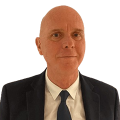
A graduate in modern languages and economics from the University of Reims, holder of a diploma in public administration, Pascal Rogard has led the ORANGE Group office in Brussels since April 2020.
He was previously Digital Advisor at the Representation of France in Brussels and also carried out various management activities as office manager and then director at the Ministry of Economy.
He has worked on economic regulation and merger control issues at the Ministry of Economy and Finance in close collaboration with the services of the European Commission.
He also spent part of his career in the services of the European Commission at DG Trade in charge of bilateral and multilateral negotiations and thus has an excellent knowledge of Community procedures and networks.
Finally, he worked in various ministerial cabinets (foreign trade and consumption) and sat on the High Council of Merchant Aviation, Ubifrance, Cofres and the International Investment Agency. He also served as “SME Envoy” for France, rapporteur for the Economic Medicines Committee and Vice-Chairman of the OECD SME Committee. He represented France at the Bureau International des Expositions.
Languages: English, German, Spanish
Publication of articles and various activities: La Revue de la Concurrence: “The liberalisation of air transport in France and in Europe”, “The functioning of the Bundeskartelamt”, “Innovation and exports of SMEs.” Chairman of CLENAD ( END Liaison Committee), Vice-champion of France in high jump, Knight of the National Order of Merit, Auditor of the Cycle of Advanced Studies for Economic Development and of the Advanced Cycle of the ENA.


Natalia Vicente is the VP of Public Affairs at GSOA where she works closely with the Secretary General and the CEOs of ESOA Member companies to drive forward high-level advocacy for the satellite communications sector. Specifically, Natalia focuses on the Development Agenda working with international organisations to ensure nation states understand the value of leveraging available satellite communications services to bridge digital, education and health divides in their countries.
Natalia is also a Board Member of the European Internet Forum where she represents ESOA in front of Members of the European Parliament. Natalia has over a decade of experience in the digital sector, focusing on public policy, government relations and building international partnerships.
Before joining ESOA, Natalia worked for the European Telecommunications Network Operator’s (ETNO) working on public and regulatory affairs. Prior to that, she worked for Telefonica, Telecom Italia and TagTagCity, where she was one of the first employees involved in establishing a start-up venture providing mobile solutions to municipalities and local businesses in Belgium.
Natalia is a qualified lawyer with an LLM from the University Autonoma of Madrid and holds a Master of Business Administration specialised in Marketing. She is a Spanish national, lives in Brussels and speaks 4 languages.



Policymakers and industry leaders across Europe are grappling with how the EU can create a more competitive and investment-friendly regulatory environment to stimulate urgently needed investment in connectivity infrastructure. Telecom CEOs continue to call for bold reform and consolidation to boost competitiveness, fund next-generation network investments, and manage a fragmented market. Yet, every potential merger raises important questions about maintaining competition, safeguarding consumers, and sustaining capital flows into next-generation networks. Alongside this push for increased private investment, discussions around public financing are also intensifying. With the next Multiannual Financial Framework (MFF) approaching and the existing Connecting Europe Facility (CEF) programme ending in 2027, attention is turning to the next steps and to how public funding instruments can complement private investment and support Europe’s connectivity objectives. Looking collectively at all these elements, and considering the balance that needs to be achieved between scale, competition, and sustainable investment, this session will look at how public and private funding can come together to deliver the finance that is required to build the networks of the future.

With over 20 years of telecoms and consulting experience, Andrew works on projects of major strategic importance, focusing principally on the strategic and regulatory issues faced by mobile operators. Formerly the Managing Director of Analysys Consulting, Andrew brings a wealth of management experience to Aetha’s senior team.
Andrew’s work for operators, regulators and financial institutions has included spectrum valuation, spectrum auction support, network sharing, transaction support, expert witness testimony and valuations for international arbitration. In addition, Andrew has undertaken advisory work on telecoms regulation, including topics such as spectrum licensing and interconnection. Andrew has advised regulators worldwide on key spectrum policy issues, including digital switchover, digital dividend and the updating of licensing regimes to allow for liberalised spectrum use, as well as the introduction of market mechanisms such as auctions and spectrum trading.
Andrew has a B.A. Honours Degree in Natural Sciences (Physics) from the University of Cambridge and an M.B.A. from Imperial College, London.

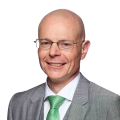
Michel Van Bellinghen chairs the BIPT Council and is responsible for the following departments: Budget and Finance, Communications, Translation, International Relations and Registry.
Michel Van Bellinghen, Master of Laws (UCL), started off at the university in 1990 as a researcher, then became an assistant under the supervision of Professor Françoise Tulkens, at the UCL Laws Centre for Criminal Law.
He became an assistant advisor at the Ministry of Justice in 1992 under the supervision of Professor Marc Bossuyt and joined BIPT in 1997. From 1999 to 2003 he held the position of expert at the private office of Rik Daems, who was the Federal Telecommunications Minister at the time, and afterwards took up the function of Assistant Head of the Private Office. From 2003 until 2009 he was nominated Member of the BIPT Council for the first time. Following this mandate he remained closely affiliated to the Council and supervised the legal department of the regulator during a number of years. He has written scientific publications. In 2013 he held a position on the Council as a Member. In January 2017 he was assigned Chairman of the BIPT Council. In January 2024, he was reappointed as Chairman of the BIPT Council.

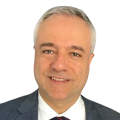
Franco Accordino is the Head of the “Investment in High-Capacity Networks” unit within the European Commission’s Directorate-General for Communications Networks, Content and Technology. The unit supports the deployment and take-up of gigabit and 5G networks underpinning the 2030’s connectivity vision and targets of the Digital Decade Policy Programme.
Before this role, Franco was the Head of the “Knowledge Management and Innovative Systems” unit delivering solutions in such fields as data analytics, participatory platforms (futurium), and artificial intelligence. He also led the “Digital Futures 2050” foresight.

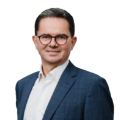
Vincent Garnier has been Director General of the FTTH Council Europe since 2020, guiding the organisation’s mission to advance ubiquitous full-fibre connectivity across Europe. He leads the operational development of the Council, overseeing its growth to more than 180 members, the work of its eight Committees, its advocacy strategy, and its broad range of activities across policy, research, and industry engagement.
In his role he shapes the Council’s advocacy strategy and represents the organisation in its engagement with EU policymakers and regulators, ensuring that fibre remains central to Europe’s digital and sustainable transformation.
Vincent also provides strategic leadership for the Council’s public events, including the annual FTTH Conference, which brings together more than 3,500 delegates, policymakers, and industry leaders. He plays a key role in shaping their content, direction, and stakeholder engagement to further strengthen the Council’s impact and visibility.
With 25 years of international telecom experience in senior Marketing and Business Development roles at CommScope, TKH Group, Prysmian Group, and Exide Technologies, Vincent is recognised as a prominent public voice for fibre, regularly representing the Council across industry platforms and high-level discussions.


Ben Wreschner is the Vodafone Group’s Regulation Policy Director. He joined Vodafone in 2011, having previously worked at PwC and Ovum Consulting. Ben is an expert in telecommunications, digital policy and economic regulation. He is a long-serving member of Vodafone’s Global External Affairs Leadership Team and is the Chair of the GSMA’s European Policy Group. Ben currently leads the external affairs and economic aspects of Vodafone’s mergers and acquisitions activities.

Across Europe, the rollout of private and industrial networks has accelerated rapidly over the past year, with the region emerging as a global leader in the deployment of dedicated networks for manufacturing and other key sectors. Private 5G has emerged as a key enabler, particularly in manufacturing, logistics, energy and transport. Alongside this, Europe’s private network ecosystem is also becoming more diverse, with technologies such as DECT and Wi-Fi starting to play an important and often complementary role. This session will explore the real progress made over the past year and lessons that are emerging from live deployments. It will explore real-world examples of private networks in action using different technologies and standards, and examine how the transformative use cases that are being enabled across enterprises and public services.

I created in 2009 CBO Consulting (ex. CBO Conseil), as dedicated to Innovative ventures, leveraging -at that time- almost 20 years of experience for Blue Chip companies in Strategy, Finance and Development.
CBO Consulting is based in Brussels and primarily covers the EU. We support start-ups/scale-ups to grow and develop through Public funding (EU and national grants) and Private funding (BAs, VCs, Banks, …).
Since 2013, I am also a coach and a mentor for beneficiaries of multiple EU innovation programmes. I guide early-stage ventures in their strategy plans, business partnerships and funding approaches.
Last but not least, I provide my expertise to various EU programmes and initiatives in (1) Telecoms (FTT-x, 5G/6G), (2) Private/Public funding (MFF, CEF, RRF, Infrastructure Funds, Innovation Debt, Venture Capital, Business Angels,…), (3) Ecosystem support (Skills and capacity building, Networking and Community building, Regulation, Access to funding, Administrative support…) in order to stimulate innovation development and venture growth for an increased market uptake and effective societal impacts.
I am passionate about innovations that will contribute to a richer future for Society at a global scale and I am constantly exploring various fields of expertise, mainly in Digital (from Photonics to Artificial Intelligence) but also in other technological areas (Watertech, Energy, Foodtech, …). I travel across the EU and abroad to meet innovators and to discover new technologies, markets, investors and ecosystems.

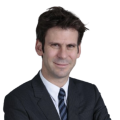


Detlef Fuehrer is the Senior Manager, Spectrum Management and Regulatory Affairs, EMEA in the CTO Office at Aruba, a Hewlett Packard Enterprise company. His main responsibility is to set and drive HPE’s legislative & regulatory priorities for the radio spectrum in EMEA and to execute all aspects of HPE’s EMEA strategy.
Prior to Aruba, Detlef managed the Spectrum Engineering activities of the European Commission’s Joint Research Centre where he established the Radio Spectrum Lab. Holding a diploma in Electronics Engineering from Dortmund University, he worked in the semiconductor industry for almost 20 years, predominantly in the communications domain, at Alcatel, Texas Instruments, and Hitachi Electronic Components. Detlef authored the first German-language expert book on ADSL and published numerous studies on spectrum sharing and wireless coexistence.

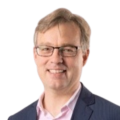
Biography to be announced.


Olivier is a resilient entrepreneur and intrapreneur with 20+ years of experience in Telecom. He has co-founded three startups, 2 of which focusing on 4G and 5G technologies. Olivier managed and developed several telecom services at Europe-based Telecom Operator Orange such as OCS, League 1, VOD. His expertise centers around Business Development, Product development, Innovation, and start-up acceleration. Olivier holds an MBA from ESCP Business School.

Artificial Intelligence (AI) and connectivity are inseparable in shaping Europe’s digital and industrial future. AI cannot deliver its full potential without the foundation of robust, secure, and energy-efficient digital infrastructure. At the same time, AI has the capability to enhance and optimise that very infrastructure, making networks more resilient, adaptive, and efficient. As generative models and other advanced AI applications scale, demands on connectivity intensify: higher bandwidth, ultra-low latency, and seamless interconnection between data centres become critical. Europe’s ambition to develop “AI Giga-Factories” further underscores the need for next-generation connectivity to power the continent’s AI ecosystem and ensure that innovation can flourish across borders. This panel will explore the mutual relationship between AI and connectivity, the opportunities for innovation, and the challenges Europe must address to build a future-ready ecosystem.

Anja advises clients on public and government affairs, campaigns, corporate communications, (CEO) positioning and reputation management, bringing extensive expertise in the TMT and chemicals industries and their respective political and regulatory landscapes across Europe.
Before joining Brunswick, Anja was Head of the EU Office and Vice President for European Affairs at Deutsche Telekom AG in Brussels. In this role, she advised senior executives on EU policy, led EU public affairs and communications, and focused on regulatory initiatives, digital policy, environmental issues, and competition policy. She also developed and implemented advocacy and government engagement strategies at the EU level, including high-profile campaigns.
Earlier in her career, Anja held senior public affairs and communications roles at Bayer in Brussels and Leverkusen, where she worked on CEO and corporate communications, lobbying, and M&A. She also spent nearly 15 years as a political journalist in Brussels, specialising in EU and NATO affairs.


Mr Mišmaš has been serving as the Director of AKOS since 2023. His extensive professional background is rooted in over two decades of industry experience. Prior to his role at AKOS, the elected incoming BEREC Chair 2026 held various positions in telecommunications, smart metering, and the automotive industries, most recently as R&D Director in the private company Iskra Mehanizmi and before that as R&D Director in the company Iskraemeco. Marko Mišmaš holds a Master’s degree in Electrical Engineering from the University of Ljubljana.

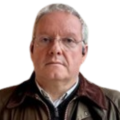
Xurxo Remuiñán is a Policy Officer in DG Communication Networks, Content and Technology in the European Commission, where he has been working on digital policies (Future Connectivity, Digital Services Act, Broadband, Digital Strategy). Prior to the Commission, he spent seventeen years developing and implementing Information Technology and e-Government solutions in national, regional and international organizations. He holds Master degrees in public policy, business administration and telecom engineering from Princeton University, Escuela de Organización Industrial and Universidad Politécnica de Madrid, respectively.


Aleksandrs Mārtiņš Blūms is the Counsellor for Research and Space at the Permanent Representation of Latvia to the European Union, based in Brussels. He was involved in negotiating the EuroHPC amendment (AI Gigafactories) and is currently negotiating the next Horizon Europe research and innovation framework program. Previously, Aleksandrs worked at the Ministry of Education and Science in several policy areas, including open science and research digitalisation. He served on the European Open Science Cloud Steering Board, wrote the Latvian Open Science Strategy for 2021-2027, helping improve the governance of shared IT services for research and e-infrastructures. He was also involved in developing the concept of the Latvian Dataverse repository network, and contributed towards the development of a national Data Stewards network.

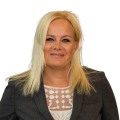
As Vice President of Network Infrastructure Sales at Nokia, I oversee strategies that enable the delivery of cutting-edge networking solutions to operators, cloud and AI players. Over two decades of experience in the industry, including leadership roles across multiple regions, I specialize in both mobile and network infrastructure business. Nokia’s teams under my leadership prioritize collaboration and innovation to deliver resilient and scalable networks that drive business growth in a rapidly evolving technological landscape. By leveraging my expertise and a commitment to fostering strong partnerships, I help organizations connecting intelligence.

As Europe advances its digital transformation, ensuring the security and resilience of its communications networks has become a central policy priority. The evolving threat landscape, shaped by rapid technological progress and shifting geopolitical realities, demands a coordinated and forward-looking approach. From safeguarding critical infrastructure and strengthening strategic autonomy to prepare for the disruptive potential of quantum technologies and artificial intelligence, Europe must balance openness, and innovation with resilience and security. Building on existing initiatives such as the 5G Toolbox and on Europe’s broader cyber security framework, the European Commission recently proposed a revision of the Cybersecurity Act and against this backdrop, this discussion will explore the path ahead to enable the EU to enhance cooperation, adapt policies, and develop new tools to protect its digital future while maintaining trust, competitiveness, and global leadership.



Dr. Marnix Dekker is Security Expert and Information Security Officer at ENISA (the European Network and Information Security Agency). Marnix works in the area of secure services and critical information infrastructures. He focuses on cloud security, smartphone security and also leads the Agency’s work on the implementation of EU-wide security regulation for telco’s (Article 13a).
He has a Master’s degree in Theoretical physics, a Ph.D. in Computer science, and a CISA certification. In his previous job he designed the protocols and processes of large national Identity Management (IdM) systems, and reviewed the deployment of a large cloud service for a critical government agency.


Katja is a lawyer with more than 20 years of experience in the field of electronic communications from the perspective of a national regulatory authority. Before taking up her current position as Advisor to the Director for International Affairs, she led the Inspection Department for several years.
At the national regulator, she has gained extensive practical experience in market regulation, the security and resilience of electronic communications networks and services, privacy, confidentiality and data protection, consumer rights, open internet regulation, and quality of service.
Since 2019, she has been co-chairing the BEREC Cybersecurity and Resilience Working Group. The Working Group cooperates closely with the NIS Cooperation Group, the European Commission, and ENISA on a wide range of topics of common interest and expertise. For several years, she also served as BEREC’s representative in the ENISA Advisory Group.

Gerry McQuaid is the Director for Telecoms and Internet Security at Ofcom with a focus on regulating the technical aspects of security within the regimes of the Telecoms Security Act and NIS Directive. Prior to Ofcom he was a CSO within the UN system. Working for a global operator and a vendor, he was responsible for managing the various national security obligations globally. He has chaired or participated in a number of ETSI/3GPP/GSMA technical security committees and as an advisor to EuroPol and various EU bodies. Additionally, he has invested time advising various international bodies particularly on capacity building and specific vendor related oversight e.g. evaluation centres and supply chain security.
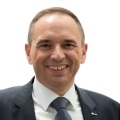
Laurent Jaffart is the European Space Agency’s Director of Connectivity and Secure Communications and Head of ECSAT in Harwell, United Kingdom, since 15 May 2024.
In this role, Mr Jaffart leads the ESA satellite telecommunication programme, including the implementation of the full portfolio of the ARTES 4.0 programme activities, Moonlight, Civil Security from Space, and the ESA contributions to the EU Secure Connectivity Programme, IRIS², in collaboration with the European Commission.
From France, Mr Jaffart has over 20 years of experience in the European space sector, most notably in senior leadership roles at Airbus Defence and Space.


Gonzalo López-Barajas leads the Corporate Regulation Unit at Telefónica, where he defines and implements the group’s regulatory priorities. He joined Telefónica in 1999 and has held various roles, starting in Marketing and Operations at Telefónica España, and then in Investor Relations for 10 years. Subsequently, he was a director at Atento, leading its IPO in 2011.
In 2012, he joined Telefónica Europe as Head of Regulatory Affairs. For nine years, he was Manager of Public Policy and Internet for Telefónica, representing the Company in international organizations such as the OECD and the ICC. In 2022, he led the Fair Share initiative and, in January 2024, assumed the direction of the Corporate Regulation Unit leading files such as DNA, CAIDA, Digital Omnibus, etc.
Gonzalo holds a degree in Telecommunications Engineering from the Polytechnic University of Madrid, is a Certified European Financial Analyst (CEFA) by the FEF, and has a master’s degree in
business management from ESADE. He is also a certified professional in Web 3 by Cryptoplaza. He is a member of the Policy Group Europe of GSMA and an Alternate Board Member of Connect Europe.


Deputy Director of Radioelectric Spectrum Planning and Management. State Secretariat of Telecommunications and Digital Infrastructures. Ministry for Digital Transformation and of Civil Service of Spain. Telecommunications and Electronics Engineer with more than 17 years of experience in the telecommunications sector.
RSPG Chair.


Jan Ellsberger is a globally recognised leader in the ICT industry with more than 30 years of experience with research and innovation, industry ecosystem development, standardisation, policy development & regulation, and strategy development in the telecommunications and automotive industries. From 2000-2012 he was leading Ericsson’s global standardisation operations.
He has also served in leading positions in several industry associations such as 3GPP, 5GAA, ERTICO and the Horizon Europe CCAM Association.

Spectrum is a vital enabler of Europe’s digital transformation, underpinning everything from 5G deployment and future connectivity technologies to industrial innovation and economic growth. The Digital Networks Act (DNA) proposes a series of spectrum reforms aimed at ensuring that Europe’s spectrum management framework supports long-term competitiveness and global leadership. Measures such as longer licence durations, reduced fees, greater cross-border coordination, and more harmonised allocation could have far-reaching implications for investment, innovation, and market stability. Against this backdrop, this session will examine how spectrum policy can best deliver on Europe’s strategic objectives – from closing the digital divide and enabling new services, to fostering the investment certainty needed to deploy next-generation networks. It will look at how best to balance the need to consider national priorities with a cohesive EU-wide approach that strengthens Europe’s digital single market and global standing in connectivity leadership.

Janette is a Partner and has worked in our UK consulting team since 2001, when she joined the company as a consultant. Janette works mainly on regulation and policy, and strategy projects, and is a leading expert on telecoms regulation, wireless markets and spectrum. Prior to joining Analysys Mason she spent several years working in the UK’s spectrum regulator on 3G licensing.
Over her 30-year career in telecoms, she has developed particular expertise in spectrum management, assignment and pricing, and the evolution of wireless technologies used in the mobile, fixed and satellite sectors. Her mobile market experience spans 2G to 5G and she is also tracking international developments on 6G wireless, including developments in terrestrial technologies for 6G as well as spectrum and deployments using LEO satellites. She has directed studies for industry bodies around the world reviewing licensing frameworks and spectrum access. She has worked with policy makers to gauge the socioeconomic impact of new wireless policies and the impact of regulatory frameworks on network deployments.
She is proud of her role as a mentor in Analysys Mason’s Female Executive Coaching Programme. Janette holds a BEng (Hons) in Electrical and Electronic Engineering from the University of Edinburgh and an MSc in Radio Frequency Engineering from the University of Bradford, UK.

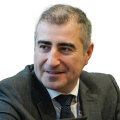
Gerasimos Sofianatos is Head of Unit of Connect B5, Radio Spectrum Policy Unit. Previously, he was Deputy Head of DG Connect Unit Connect B5, “Investment in high-capacity networks”. He has been working for the Commission since 2011, in different positions in DG Connect, in Directorate B, dealing with the policy and implementation of the EU Regulatory Framework for Electronic Communications. Gerasimos led the team monitoring and implementing EU law and in particular the European Electronic Communications Code, a piece of legislation in the drafting and negotiation of which he was actively involved. Prior to joining the Commission, Gerasimos worked as legal officer at the Cypriot National Regulatory Authority for Electronic Communications (OCECPR). Before joining the Commission, he was a Member of the Athens Bar Association and practiced competition law. He holds a Masters degree in Business Law and a PhD in competition law at the Paris 1- Sorbonne University. He holds a law degree from the Aristotle University of Thessaloniki and a post-graduate degree in Economics for Competition law from the King’s College London. Gerasimos is of Greek nationality and speaks Greek, English, and French.

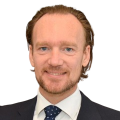
Jonas Wessel is Director of the Resource Management Department at the Swedish Post and Telecom Agency (PTS). He is also Chair of the Radio Spectrum Policy Group (RSPG) for the 2018-2019 period. The RSPG is a high-level advisory group that assists the European Commission in the development of radio spectrum policy. JMr Wessel holds a MSC from the Royal Institute of Technology (KTH) in Industrial Engineering and Management. He started his professional career as a strategy consultant, working mainly with business development in the telecoms and IT-sector.
In 2003, Mr Jonas joined the PTS as advisor on radio spectrum policy issues. After several positions within the Agency, including responsibility for auctions, he was assigned Director of the Spectrum Department in 2014. Jonas has been one of the driving forces behind the transformation of spectrum management in Sweden and has also been working with these issues internationally, mainly through the RSPG where he has been a delegate since 2004. He was Vice Chairman of the RSPG for the 2016-2017 period.


Eric Fournier is currently Director for Spectrum Planning and International Affairs in the Agence Nationale des Fréquences (ANFR), the French public agency in charge of spectrum management (www.anfr.fr).
In this capacity, Mr Fournier is responsible for preparing the revisions of the French national table of spectrum allocation and for coordinating French positions in international meetings on spectrum within ITU, CEPT and EU. He was deputy head of the French delegation for RRC-06, WRC-07, WRC-12, WRC-15 and WRC-19.
Mr Fournier has been involved in all discussions on major evolution of spectrum in Europe and was Chairman of the Electronic Communication Committee (CEPT/ECC) from 2013 to 2018 and of the European Conference Preparatory Group for the World Radiocommunications Conference 2012 (CPG-12).
He is currently the chairman of the RSPG Good Offices addressing issues of cross-border coordination and interference within the EU.
Mr Fournier is a graduate telecom engineer from SUPELEC (France).


Manuel R. Marti is Policy Director for Spectrum in Europe, where he leads strategic engagement on European spectrum policy, regulatory frameworks, and industry coordination.
He joined GSMA in October 2025 from LS telcom, where he worked as a spectrum policy consultant specialising in global digital policy and regulation. His work focused on spectrum management and technological convergence, advising government and industry stakeholders worldwide on strategic regulatory and policy frameworks.
Prior to that, Manuel led the UK Spectrum Policy Forum (UK SPF) within techUK, the UK’s largest technology trade association. In this role, he oversaw techUK’s spectrum and satellite policy development process, shaped industry positions, and led engagement with the UK government and regulators.
Manuel holds an MSc in International Politics from SOAS, University of London and BA Hons in International Journalism from UCLAN.




Andreas Wilzeck is Head of Spectrum Policy and Standards at Sennheiser electronic GmbH & Co. KG, Germany.
He is Vice-Chair of the ETSI TC DECT, was Chair of the ETSI Evaluation Group for IMT-2020 and is an active participant in the standardisation work of various ETSI technical committees. He also participates in WRC, ITU-R, CEPT and other PMSE-related spectrum regulatory work globally.
He received the Dr.-Ing. degree from the Faculty of Electrical Engineering and Computer Science at Gottfried Wilhelm Leibniz Universität Hannover in August 2009.

The development of 6G depends on close coordination between spectrum planning and standardisation. The European 6G spectrum roadmap will determine which frequency bands are made available and under what conditions, while standardisation defines how those bands are used through common technical specifications. Aligning these processes is essential to ensure efficiency, interoperability, and both regional and global harmonisation. This session will look at both elements. It will consider the progress that is being made towards defining the band or bands that will be the ‘workhorse’ of initial 6G network rollout and look at the anticipated timelines and phases of 6G standardisation and at the path ahead. Reflecting on lessons from 5G and previous generations, the discussion will consider how Europe can align spectrum policy, research, and industry readiness to ensure a timely, competitive, and sustainable transition to 6G.

An engineer with broad experience in the telecoms and technology sectors, Andy has a particular interest in spectrum (auctions and valuation) and the impact of new technology (5G, AI, IoT and Big Data). He brings a deep understanding of both the industry and regulatory perspectives around the world through his role as Head of Policy for the GSMA and as Director of Spectrum Policy at Ofcom.
Andy spent 12 years at Vodafone, where he held various senior product development and corporate strategy roles. As Head of Spectrum, he was responsible for managing spectrum policy and auctions across the Vodafone Group. He led over twenty spectrum auctions around the world (including Turkey, Italy, Germany, India, Spain, Italy, Greece, Australia, Romania, NL and UK) from strategy/business case development to Plc. Board level sign-off and in-country implementation.
He was formerly a management consultant, has launched an internet payments and encryption company and worked as a research scientist at Sharp Laboratories of Europe and Sony Corporation, based in Japan. He has a doctorate in Engineering Science from Oxford University and an MBA. He is a frequent invited speaker at international conferences.


Since 2023, Erzsébet Fitori has been the Executive Director of the Smart Networks and Services Joint Undertaking with a mission to boost 5G deployment in Europe and foster Europe’s technology sovereignty in 6G.
Previously, she was responsible for Vodafone Group’s engagement with the EU institutions and stakeholders, heading Vodafone’s Brussels Office and as Board Director in industry organizations. Before joining Vodafone in 2020, Erzsébet was Director General of the FTTH Council Europe, the pan-European trade association representing over 160 technology innovators, network operators, and investors across the fibre value chain. As chief executive, she focused on transforming it into a growing organization, increasing its membership base, revenues, and engagement with key decision-makers.
She joined the FTTH Council from the European Competitive Telecommunications Association (ECTA), where she represented 100+ challenger telecoms network operators.
As Director of ECTA, she oversaw its public policy, regulatory, and PR activities and led ECTA’s engagement with the EU institutions, national regulators, and governments. Before joining ECTA, she was Head of Regulatory Affairs at Telenor Hungary in Budapest. In her early career, Erzsébet was an Assistant Professor in the department of European law and private international law at the University of Miskolc, Hungary.


Dr. Tassos Lyratzis is an Electrical & Computer Engineer and holds a PhD in the field of Telecommunications & Computer Networks (1994). During his PhD studies, he worked as a specialist in Telecommunications in various European research projects.
He is currently working in the Hellenic Telecommunications and Post Commission (EETT) since 2001, in the Spectrum Directorate. He has been the Head of the Spectrum Management Department (2003-2006) when EETT was involved in the Spectrum Management of the Olympic Games of Athens in 2004. Since 2011 he is Head (Director) of Spectrum Directorate of EETT.
He participates in international activities in CEPT (ECC, WGFM) as well as in European Union groups like the Radio Spectrum Committee (2003 – 2006), and the Radio Spectrum Policy Group (2011 – today). Since 2016 he has been co-chair of the RSPG sub-Groups working on 5G and 6G topics.


Derek Khlopin is Deputy Associate Administrator in NTIA’s Office of Spectrum Management (OSM). Mr. Khlopin leads spectrum management efforts for the federal agencies, NTIA coordination groups such as IRAC and PPSG, and spectrum policy initiatives.
Derek has been with NTIA since 2015 as a Senior Advisor to the Assistant Secretary and NTIA Administrator, spending most of his time collaborating with OSM and ITS. More recently, he added to his responsibilities as Acting Chief of SAID. Prior to joining NTIA, Derek spent most of his career in the private sector after a start at the FCC, including in senior government affairs positions with Nokia. Derek is a graduate of the Catholic University of America School of Law.


Eliane Semaan is a Senior Researcher at Ericsson. She received her M.Sc. degree in wireless systems from the Royal Institute of Technology and joined Ericsson in 2011. She is currently working on spectrum regulations and involved in different CEPT ECC groups, focusing on the introduction of 5G in Europe. She has been involved in the 3GPP standardization work for several releases of the 4G and 5G standards, focusing on physical layer enhancements (RAN1) and coexistence studies (RAN4).


David Boswarthick is the ETSI Director of Strategy and Innovation, where he is responsible for tracking and capturing ICT research & development activities that are ready for standardization. He devotes himself to new business / technology development and the creation of strong links and enablers towards R&D, academia, National, EU, global research projects and the creation of new or enhanced standards groups in ETSI. David has more than 30 years’ experience in the telecommunications sector, which includes over 25 years’ working in ICT standardization supporting both 3GPP and ETSI Technical groups as well as Board level strategic initiatives.

As Europe advances its industrial and digital strategies, satellite and other non-terrestrial technologies are emerging alongside IMT and terrestrial connectivity as essential components of a resilient, high-capacity, and future looking communications ecosystem. Direct-to-device (D2D) capabilities, low-Earth orbit constellations, and hybrid network architectures are already reshaping how connectivity is delivered – expanding coverage, improving redundancy, and unlocking new industrial and societal applications. This session will examine the trends that are being seen towards a more integrated and hybrid approach and explore the likely path ahead. It will look at the role that satellites, Wi-Fi and IoT Communications are likely to play in a future 6G ecosystem, and the technical, regulatory, and investment-related challenges that remain to enable their integration. It will discuss what is needed to build a cohesive and innovation-friendly framework for hybrid connectivity – one that leverages the strengths of each technology to deliver ubiquitous, high-quality connectivity and underpin Europe’s 6G ambitions.

A former business journalist (Wall Street Journal, The Economist Group), David is an analyst, writer and editor specialising in the telecoms, media and technology sectors. David is adept in identifying effective positioning on current issues and delivers jargon-free, incisive and impactful narrative content and analysis.
David is regularly invited to moderate panel discussions at major industry conferences.
David previously worked at the GSMA, providing media relations support to the CEO, chairman and other senior executives in the mobile industry. Between 2000 and 2005, David was the European technology and telecommunications correspondent for The Wall Street Journal covering Vodafone, Nokia, Ericsson, British Telecom and other major multinationals. He has also served as Deputy Editor of Information Strategy, a pan-European title owned by The Economist Group.


After a state exam in law at the University of Osnabrück, Mr Kühn has been working since 1998 in the area of legal internship (e.g. at Regional Court) of the Federal Network Agency Germany; changing to National and International Spectrum Regulation on different levels in 2005. Nowadays, he is the Deputy Head of Section for International Affairs and Utilization Concepts. His responsibilities cover strategic frequency utilization concepts and the transposition of those to the international level of CEPT, EU and ITU. Doing this and having been active in the preparation of three WRC’s, on national and on CEPT CPG level, Mr Kühn participated in a number of international Groups, also as Head of the German Delegation. He has also chaired several groups and subgroups in the ITU and CEPT. Since 2005, he has been responsible for the German preparation of the WRC’s and served as CEPT CPG Vice Chairman from 2010 to 2013. Mr Kühn was appointed Chairman of CPG in June 2013.


Chris Woolford is Ofcom’s Director of International Spectrum Policy where his responsibilities cover the UK’s international spectrum interests, especially in relation to the ITU, CEPT and EU. He has closely engaged for the UK on a number of key European regulatory initiatives in the field of electronic communications and participates in many European spectrum groups. He leads UK engagement with the ITU and led the UK delegations to WRCs in 2019, 2015 and 2012. He is currently preparing to lead the UK delegation to WRC-23.
In 2019 Mr Woolford took on the role of Chairman of the Electronic Communications Committee (ECC) of CEPT and was re-elected for a second term in 2022. He has also been a Director of the International Institute of Communications since 2018.
Mr Woolford has 25 years’ experience of working on spectrum and communications regulation, both at Ofcom and its predecessor (Oftel). He has a degree in mathematics and statistics from Manchester University.


Elisabet Fonalleras is an specialist in telecommunications policy and regulatory affairs, currently serving as the Head of Regulatory Affairs and Global Licensing at Sateliot, a pioneering company in the field of satellite IoT connectivity. With experience in navigating complex regulatory landscapes, Elisabet has been instrumental in shaping policies that drive innovation and compliance in the rapidly evolving satellite communications industry.
She holds a Master’s degree in Air and Space Law, and frequently participates at international conferences and forums, advocating for policies that foster technological advancement while ensuring regulatory compliance.
In his role at Sateliot, Elisabet continues to be a driving force in the integration of satellite technology into the global telecommunications infrastructure, promoting sustainable growth and innovation in the IoT ecosystem.Her strategic insights and advocacy efforts have been pivotal in securing key regulatory approvals, facilitating Sateliot’s mission to provide seamless, global IoT connectivity through its cutting-edge small satellite constellation and implementation of the 5G NB-IoT NTN standard.



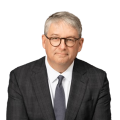
Barbee Ponder IV was named General Counsel and Vice President of Regulatory Affairs for Globalstar, Inc. in July of 2010. Mr. Ponder has previously served as Senior Regulatory Counsel for BellSouth Corporation in Washington, D.C. where he provided representation before the Federal Communications Commission, Congress and the White House on issues concerning 1996 Telecommunications Act, deregulation of broadband services and tax issues concerning the telecommunications industry.
Prior to joining BellSouth, Mr. Ponder practiced with the Jones Walker law firm in New Orleans, where he specialized in commercial litigation including class action defense. Mr. Ponder is responsible for all of Globalstar’s legal and regulatory matters, including those with the FCC and other international communications regulatory agencies. Mr. Ponder holds a law degree (Juris Doctor with distinction) from the Emory University School of Law, Atlanta, GA and a Bachelor of Science in Management degree from the A.B. Freeman School of Business, Tulane University, New Orleans, LA.


Darren Leads Vodafone Group’s EU affairs team & is head of its Brussels office. A former award-winning Reuters journalist, he has extensive experience inside and outside government at national and EU level, including as Special Advisor to the first EU High Representative.

As Europe reshapes its defence architecture, the next generation of secure communications will be critical to operational capability, resilience and strategic autonomy. The European Commission’s proposed revisions to the Multiannual Financial Framework (MFF) and the emerging ReArm Europe initiative signal a historic shift in EU defence investment, yet questions remain over how far defence and military communications will be prioritised within this framework. This panel will explore the technologies, policies and partnerships driving the development of secure, trusted and interoperable communication systems for Europe’s armed forces and critical infrastructures. It will also examine both the potential and the challenges offered by ‘dual-use’ networks and technologies that serve both civilian and military customers; as well as moving beyond military communications to other critical communications infrastructure as the balance between sovereignty, resilience, and interoperability in an increasingly contested digital and geopolitical environment.

Camilla Mina previously worked at the African Business Magazine and the Agenda Culturel, in Beirut. Today she works as a journalist at PolicyTracker, where she covers policy in the telecommunications sector.


Mark Lüetzner is a Policy Officer in the European Commission’s Directorate-General for Defence Industry and Space (DG DEFIS), where he currently leads Service Security for the IRIS² satellite constellation. In this capacity, he manages critical security aspects for the European Union’s next-generation secure communications infrastructure, also contributing to GOVSATCOM and EuroQCI initiatives. His current mission focuses on advancing Europe’s strategic autonomy in space by ensuring the resilience and security of orbital assets and services.


Nassima Auvray has been the Head of Defense & Security Business Unit at Orange Business since January 2025.
She began her career at the French Defense procurement agency, Directorate General of Armaments (DGA), as an expert in military satellite telecommunications, before leading electronic warfare projects.
In 2015, she became DGA CFO’s Chief of Staff, and in 2017, she joined the Ministry of Finance, where she served as Deputy Head of the Defense Office.
In 2019, she took on the role of Innovation & Digital Advisor at the Ministry of the Armed Forces office. There, she notably led initiatives such as the creation of the Defense Ethics Committee, and the launch of the “Defense Innovation Fund” aimed at innovative companies working on technologies relevant to the defense sector (energy, quantum, AI, semiconductors, autonomous vehicles, cyber, space, etc.).
In January 2022, Nassima Auvray joined Orange Business as Chief Trust Officer, responsible for defining strategy on trust and digital sovereignty issues, starting with Cloud. She was notably involved in the launch of the joint-venture BLEU (shareholders: Orange & Capgemini).
Nassima Auvray is a chief armament engineer.



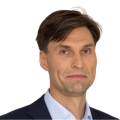
Mr. Darius Kuliešius is the Deputy Chairman of the Board of Communications Regulatory Authority of Lithuania RRT and a member of the Board of Supervisory Institutions‘ Association of Lithuania.
He previously served as an Advisor to the President of the Republic of Lithuania and has held various positions within the Ministry of Transport and Communications and the Ministry of the Interior of Lithuania. Mr. Kuliešius has also served as a board member of several state-owned enterprises.
In RRT, Mr. Kuliešius‘ supervises the fields of spectrum managament, spectrum monitoring, postal, electornic communications, AI and other digital connectivity issues and takes leadership in the implementation of network resilience measures, incl. national roaming, D2C solutions as well as GNSS interference challenges in Lithuania.
He has Master‘s degree in Law and Management.

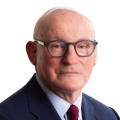
He works closely with the firm’s regional and specialist leads across Technology, Crisis and Litigation, Public Affairs, Competition and Regulatory Affairs.
Paddy was previously the UK’s Deputy National Security Advisor for Intelligence, Security and Resilience, advising two successive British Prime Ministers on everything in the National Risk Assessment and the UK’s ability to respond to and recover from all hazards and threats, Cyber strategies, Counter Terrorism and approach to managing Hostile State Activities including the resilience of Critical National Infrastructure. He chaired the Investment Security Group, reviewing FDI and M&A for National Security purposes.
In the Foreign Service, Paddy served in the Middle East and Europe, He was an envoy on Yemen, security of major sporting events, and National Security and Law Enforcement access to data.
Away from Brunswick, Paddy advises governments on their resilience, and Private Equity on emerging technologies. He is a co- founder of Oxford Digital Healthcare and Venari Security.

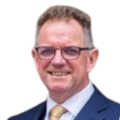
(1963) Upon joining the Royal Netherlands Air Force (RNLAF) he entered the Royal Military Academy in 1981 ( Electronics Engineering, graduating in 1986). His assignments included operational as well as various Staff positions within the CIS/IT domain (CIS Operations, CIS Planning) as well as outside the CIS Domain (Financial Planner, Deputy Program Manager for RNLAF IT Modernization). Following an assignment at the Netherlands Military Representation to NATO covering C3/CIS, Air Defence and Resources, he retired as a Lieutenant-Colonel from the RNLAF in December 2003 and joined the NATO Headquarters C3 Staff (now: Cyber and Digital Transformation) as Staff Officer Communications Networks. He is now the Section Head of the Digital Plans and Capabilities Section, addressing C3 Capability Development, C3 elements of NATO Defence Planning, Alliance Interoperability, and Identification and Navigation systems and networks. He also acts as focal point at NATO HQ for the C4 related projects as part of the NATO Ukraine Comprehensive Assistance Package Trust Fund.

The next chapter for Europe’s connectivity ecosystem will depend not only on technology, but on how different players – telecom operators, hyper-scalers, satellite providers, cloud platforms and policymakers – collaborate, compete, and co-invest to build the networks of the future. This closing session will look to bring together discussions heard so far this year’s event to explore how cooperation, innovation, and new business models can drive a more resilient, competitive, and globally leading European connectivity landscape. It will take a longer-term view, exploring how the debates around specialised services, the integration of AI, cloud, and non-terrestrial networks, and the need to balance competition with cooperation can together shape a post-2030 connectivity ecosystem — one that unleashes innovation, strengthens Europe’s technological sovereignty, and enhances its global competitiveness.

An engineer with broad experience in the telecoms and technology sectors, Andy has a particular interest in spectrum (auctions and valuation) and the impact of new technology (5G, AI, IoT and Big Data). He brings a deep understanding of both the industry and regulatory perspectives around the world through his role as Head of Policy for the GSMA and as Director of Spectrum Policy at Ofcom.
Andy spent 12 years at Vodafone, where he held various senior product development and corporate strategy roles. As Head of Spectrum, he was responsible for managing spectrum policy and auctions across the Vodafone Group. He led over twenty spectrum auctions around the world (including Turkey, Italy, Germany, India, Spain, Italy, Greece, Australia, Romania, NL and UK) from strategy/business case development to Plc. Board level sign-off and in-country implementation.
He was formerly a management consultant, has launched an internet payments and encryption company and worked as a research scientist at Sharp Laboratories of Europe and Sony Corporation, based in Japan. He has a doctorate in Engineering Science from Oxford University and an MBA. He is a frequent invited speaker at international conferences.

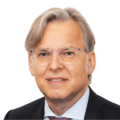
Stefan Lechler has been working since 2013 in the Directorate-General for Communication Networks, Content and Technology of the European Commission.
Since 2018 he is Deputy Head of Unit for Electronic Communications Policy, Implementation and Enforcement. Previously, Mr Lechler worked for DG Competition and for the Legal Service of the Council of the European Union.
Before Mr Lechler moved from the private sector to the EU in 2008, he had first worked as an attorney (Rechtsanwalt) in a US corporate law firm in Brussels and then for 10 years in a German telecommunications group (inter alia as head of competition law and major litigation).


Deputy Director of Radioelectric Spectrum Planning and Management. State Secretariat of Telecommunications and Digital Infrastructures. Ministry for Digital Transformation and of Civil Service of Spain. Telecommunications and Electronics Engineer with more than 17 years of experience in the telecommunications sector.
RSPG Chair.


Per Beming is currently responsible for all standardization and industry initiatives, including open source, for the Ericsson Group. In previous roles Per was responsible for Radio’s 5G program targeting 5G RAN products and demos, in addition to driving the architecture at Business Area Networks.
He has been Director of RBS Systems at Development Unit Radio, Business Unit Networks, and has also held a role of Expert in Radio Access Architecture at Ericsson Research, as well as been the Head of Ericsson’s delegation to 3GPP RAN for WCDMA, HSPA and LTE standardization.
Per Beming joined Ericsson Research in 1994 and holds a MSc in Applied Physics and Electrical Engineering from the Linköping University

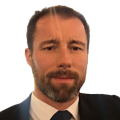
Yohann Bénard is Amazon’s Public Policy Director EU, digital. He started his career in blue chip French governmental bodies, serving as judge with the Council of State, then advisor to the Prime Minister and deputy chief of staff to Economy & Finance Minister Christine Lagarde. Before joining Amazon, Yohann held senior business and corporate roles in the telecom industry (Alcatel-Lucent, Nokia).


Renate Nikolay is deputy director general at DG Connect. Before that, she was head of cabinet of Vera Jourova, the European commissioner for justice, consumers and gender equality. Before that, she led the Unit of interinstitutional and international relations in DG Justice between 2011 and 2014. She has also been an advisor in the cabinet of the first High Representative and Vice President Catherine Ashton where she led on the relations with the European Parliament in setting up the European External Action Service (EEAS) and on relations with Asia, in particular China. Before that, she was a member of the cabinet of Trade Commissioners Peter Mandelson and Catherine Ashton from 2004 to 2009.
She started her career in the European Commission in the department for trade in November 2003 dealing with the accession negotiations of Vietnam to the World Trade Organisation and with the trade policy committee with the member states. She has also been a diplomat in the German Permanent Representation in Brussels and worked as private secretary to the German G8 sherpa in the German Ministry of Economics. Nikolay holds an M.A. as a Fulbright Scholar in Washington DC and a B.A. in law from the Free University in Berlin.


Mr Mišmaš has been serving as the Director of AKOS since 2023. His extensive professional background is rooted in over two decades of industry experience. Prior to his role at AKOS, the elected incoming BEREC Chair 2026 held various positions in telecommunications, smart metering, and the automotive industries, most recently as R&D Director in the private company Iskra Mehanizmi and before that as R&D Director in the company Iskraemeco. Marko Mišmaš holds a Master’s degree in Electrical Engineering from the University of Ljubljana.


Alessandro Gropelli is the Director General of Connect Europe, the voice of the leading providers of connectivity networks and services in Europe. Alessandro is a technology and political affairs leader, trained in Europe and overseas. At Connect Europe, he leads the Team and represents the Association. He is also a Board member of GeSI, the Global Enabling Sustainability Initiative.
Alessandro previously served at ETNO, the former association representing leading telecom operators, in different positions. In the period 2018-2024 he was Deputy Director General: in this capacity, in 2023-2024, he curated the transformation project ETNO+, which resulted in the launch of Connect Europe. In 2023 he was named in the top 10 of Politico’s Power40 list as one of the most influential operatives in European affairs. In 2016-2018 he served as Director of Communications of ETNO and, back in 2013-2016, he was Head of Communications and Media.
Before joining the Association, between 2010 and 2013, Alessandro was European affairs advisor at Vodafone Group and vice-Chairman of the m-commerce Working Group of mobile operators’ association GSMA Europe. Prior to that, in 2009, he also worked in the Public Affairs team of Telecom Italia and as a public relations officer at the European Parliament.
Alessandro holds an Executive MBA from Copenhagen Business School (2021) and finalised executive education courses at the MIT (2018) and Berkeley Haas (2016). He graduated in public management from Bocconi University in Milan (2009) and concluded an education programme at the Hitotsubashi University of Tokyo (2008). He speaks English, Italian and French.

Europe’s digital future and the realisation of its digital ambitions depends on the rapid and equitable deployment of advanced connectivity. And connectivity itself is evolving. The convergence of 5G and mobile technologies with cloud, edge computing, fibre, and non-terrestrial networks is set to become one of the defining technical trends of the next decade. Increasingly, this convergence is recognised as a key enabler for achieving the goals of the EU’s Digital Decade 2030 strategy. This session will set the scene by examining the current state of play in the rollout of next-generation connectivity networks across Member States. It will explore how challenges such as uneven deployment, fragmented markets, and persistent investment gaps can be addressed, and why the rollout of high-speed wired and wireless infrastructure, including fibre, Wi-Fi, and 5G standalone networks, continues to lag behind targets. The session will open with the launch of Connect Europe’s annual State of Digital Communications Report, providing an update on the rollout of 5G and related digital technologies across Europe. A panel discussion will follow, assessing the current deployment landscape, identifying barriers to progress, and evaluating how close the EU is to meeting its gigabit connectivity ambitions.

Aude is a Director and an economist with nearly 20 years’ experience at the crossroads of technology, telecoms and regulation. She works for industry stakeholders on informing their economic and regulatory decisions and improving their policies and performance.
Her differentiating strength is her ability to connect the dots between market dynamics, regulatory shifts, technological disruption and societal expectations. She helps to translate complex and nuanced areas of policy and change into clear strategic implications for decision makers.
She has led and managed international projects for BEREC, the ITU, the World Bank, GSMA and national regulators, and has advised global tech companies and telecoms operators.
She currently serves on the board of directors of the think tank Renaissance Numérique and chairs the French chapter of the International Institute of Communications (IIC). Aude holds a PhD in Economics (Telecom ParisTech), an MPhil in International Economic Relations (Sciences Po Paris) and an MSc in Business Administration (SKEMA Business School, France).
Mentoring matters to her: she actively supports younger women in tech and policy, and she is drawn to anything that makes leadership more open and futureproof. When she is not travelling with family or rethinking how systems should work, you will probably find her at a concert or ballet, or quietly negotiating with herself about buying yet another beautiful notebook she absolutely does not need.


I graduated with a degree in management and leadership from SWPS University in Warsaw. I have had a long career in journalism. I began working in this profession in the 1990s, when I joined “Gazeta Wyborcza.” I later served as deputy editor-in-chief of publications such as “Puls Biznesu” and “Businessweek.” I was editor-in-chief of the monthly “Forbes,” the weeklies “Newsweek Polska” and “Wprost,” and “Dziennik Gazeta Prawna.” I had the honor of co-hosting RMF FM’s “Kontrapunkt” and “Newsweek,” as well as managing the news portal pulsbiznesu.pl. I have moderated hundreds of debates, conferences, and panel discussions, and served on juries for numerous journalism awards.
After leaving the media industry, I became Managing Director of the Prime Speakers speaking agency and then Head of the Washington branch of the Atlantic Council think tank. I also served on the board of the Youth Achievement Foundation and served as President of the Polska od Nowa Foundation.


Miguel González-Sancho is Head of the Unit “Cybersecurity Technology and Capacity Building” at the European Commission and interim Executive Director of the “European Cybersecurity Competence Centre”, covering various EU files on cybersecurity including: funding for research and deployment, network of Security Operations Centres, cyber emergency fund and reserve, 5G and supply chain, certification, threat detection and response, relations with the European Cybersecurity Agency-ENISA.


Robert Mourik is a BEREC Vice-Chair in 2024 and assumed the role of BEREC Chair for 2025 on 1 January. He joined the Commission for Communications Regulation (ComReg) as Commissioner in 2019 and has almost thirty years’ experience in the telecoms sector, as an industry executive and as a Government official. Prior to joining ComReg, he worked for Cubic Telecom, a new entrant in the automotive IoT space, where he was responsible for all wholesale activities. Robert spent almost 10 years in Telefonica as the European Regulatory Strategy Director at their corporate HQ in Madrid and as Strategy Director in Ireland. He also worked for Vodafone Group, as its head of their Brussels Office and in the regulatory department in Newbury, UK. In 1991, Robert began his career in the Dutch Department for Transport and Telecommunication, and from 1994 until 1999, he served as Telecom Attache at the Netherlands’ Permanent Representation in Brussels. He was a Member and Chair of the Council Telecoms Working Group in 1998, when the first telecom regulatory package was adopted. Robert was born in the Netherlands and studied Economics and Public Policy at the Erasmus University in Rotterdam and the University of Hull (UK).


Maarit Palovirta is the Deputy Director General of Connect Europe, the voice of the leading providers of connectivity networks and services in Europe. She leads the association’s policy and organisational strategy, overseeing its work on a variety of policy and regulatory topics as well as its international outreach. She is also a Board member of CTAM Europe.
Before joining the Association as a Director of Regulatory Affairs in 2019, Maarit was a Senior Manager of European Affairs at the Internet Society where she acquired strong experience in internet development as well as extensive links with global internet and tech stakeholders. Prior to that, she engaged with governments across EMEA as a public sector business development manager at Cisco Systems for six years. Maarit has also developed a strong service-oriented, hands-on profile acquired in leading public affairs consultancies in Brussels.
Maarit has an academic background from the College of Europe, London School of Economics, King’s College London and SciencesPo Paris and has completed executive education courses at IESE. She speaks Finnish, English and French.


Before joining Wi-Fi Alliance in 2008, Kevin enjoyed working with early stage technology start-ups on business strategy consulting and technology market research. Kevin is a veteran of the United States Army, where he served as a Captain in the Infantry. Kevin holds a BS in Computer Science from the United States Military Academy at West Point and an MBA with a specialization in Entrepreneurship from The University of Texas at Austin. He lives with his family in Austin, Texas.


Luigi Ardito is currently working as Director of government affairs for Europe, Middle East and North Africa at Qualcomm and drives the Qualcomm spectrum and regulatory policy agenda in Europe and MENA dealing with various government entities and industry organizations.
Prior to joining Qualcomm, Luigi worked for over a decade at Sony Corporation both in Japan and in the UK. Luigi also gained professional experience at France Telecom and at the Italian Public Broadcaster RAI.
Luigi has extensive experience in the Media and Telecom industry as well as the Semiconductor Industry gained through his assignments at Qualcomm, Sony, France Telecom and RAI. He holds an Electronic Engineering Degree gained at the Politecnico di Torino in Italy and a Master of Business Administration gained at the Henley Management College in the UK.

Released in January 2026, The Digital Networks Act (DNA) represents a transformative milestone in Europe’s connectivity and digital infrastructure policy. Designed to modernise and simplify the regulatory framework, boost investment and industrial innovation, and ensure resilience and competition, the DNA will shape how networks are built, governed, and leveraged across the continent. Scheduled to take place just days after the date of its scheduled launch, this panel will discuss the overarching goals of the Act, and the measures that need to be put in place to ensure that these are delivered. It will explore how it fits into Europe’s wider policy ambitions, the opportunities it opens for innovation and growth, and the challenges that will need to be addressed to ensure a sustainable, competitive and secure digital future for Europe.

Matej Podbevšek is a Principal Analyst and Team Manager at Cullen International, a leading provider of regulatory intelligence and analysis covering telecommunications, the digital economy, media, and postal sectors.
A seasoned telecoms regulatory lawyer with 20 years of experience, Matej has been with Cullen International for over a decade. Before that, he worked as a regulatory expert at the Slovenian Agency for Communication Networks and Services (AKOS) and as a Seconded National Expert at the BEREC Office.
Matej holds a Bachelor’s degree in Law from the University of Ljubljana and an LL.M. in Telecommunications Law from Queen Mary University of London.”


Peter is managing the Commission’s policy on 5G communication systems and the related research and innovation programme.
Before his appointment as Head of Unit he was managing the office of the Director General of DG CONNECT, Roberto Viola, coordinating the Commission’s digital policy initiatives. The portfolio included Digital Single Market, Broadband Policy, Telecoms, Media and Online Policy, the Copyright Reform as well as the EU ICT Research and Innovation Programme.
Between 2010 and 2014 he had different roles in the Commission’s telecoms policy Directorate. These included Head of Sector “Spectrum Policy”, penholder of main elements of the Commission proposal on the Telecom Single Market and the Roaming regulation, and the implementation of the EU telecom rules in Germany and Austria.
Between 2005 and 2010 he coordinated the EU R&D programme leading to the 4G mobile communications standards.
Before joining the European Commission in 2004 he has occupied several engineering and management positions in industry, academia and start-ups. He holds engineering and doctoral degrees from RWTH Aachen University, Germany.


Laszlo Toth, Head of Europe & CIS, leads a highly experienced cross-functional team and drives collaborative efforts between the mobile industry, policymakers and ecosystems to advance digital economies. He focuses on the promotion and execution of the GSMA’s global programmes at the regional level, as well as managing and delivering regional priorities.
Laszlo started his professional career working at telecoms operators. Prior to joining GSMA in 2011, he spent nine years at the Hungarian public administration, including spells at the Ministry responsible for ICT and at the national telecoms regulator. Laszlo has an MSc. in economics and holds a degree in computer sciences.


Dragan is Senior Director of Public Affairs, Communications & Regulatory at American Tower Europe. Since September 2024, he has chaired the Strategy and Policy Working Group of the European Wireless Infrastructure Association (EWIA).
Previously, Dragan served as Senior Manager at Deutsche Telekom, where he was part of the Public & Regulatory Affairs team, focusing on digital policy as well as mergers and antitrust matters in the ICT sector. Before joining Deutsche Telekom, he worked as an economist in the Chief Economist Team at the European Commission’s Directorate-General for Competition (DG COMP), contributing to EU merger and antitrust cases.
He holds a Ph.D. in Competition Economics and Industrial Organization from Heinrich Heine University Düsseldorf.


A graduate in modern languages and economics from the University of Reims, holder of a diploma in public administration, Pascal Rogard has led the ORANGE Group office in Brussels since April 2020.
He was previously Digital Advisor at the Representation of France in Brussels and also carried out various management activities as office manager and then director at the Ministry of Economy.
He has worked on economic regulation and merger control issues at the Ministry of Economy and Finance in close collaboration with the services of the European Commission.
He also spent part of his career in the services of the European Commission at DG Trade in charge of bilateral and multilateral negotiations and thus has an excellent knowledge of Community procedures and networks.
Finally, he worked in various ministerial cabinets (foreign trade and consumption) and sat on the High Council of Merchant Aviation, Ubifrance, Cofres and the International Investment Agency. He also served as “SME Envoy” for France, rapporteur for the Economic Medicines Committee and Vice-Chairman of the OECD SME Committee. He represented France at the Bureau International des Expositions.
Languages: English, German, Spanish
Publication of articles and various activities: La Revue de la Concurrence: “The liberalisation of air transport in France and in Europe”, “The functioning of the Bundeskartelamt”, “Innovation and exports of SMEs.” Chairman of CLENAD ( END Liaison Committee), Vice-champion of France in high jump, Knight of the National Order of Merit, Auditor of the Cycle of Advanced Studies for Economic Development and of the Advanced Cycle of the ENA.


Natalia Vicente is the VP of Public Affairs at GSOA where she works closely with the Secretary General and the CEOs of ESOA Member companies to drive forward high-level advocacy for the satellite communications sector. Specifically, Natalia focuses on the Development Agenda working with international organisations to ensure nation states understand the value of leveraging available satellite communications services to bridge digital, education and health divides in their countries.
Natalia is also a Board Member of the European Internet Forum where she represents ESOA in front of Members of the European Parliament. Natalia has over a decade of experience in the digital sector, focusing on public policy, government relations and building international partnerships.
Before joining ESOA, Natalia worked for the European Telecommunications Network Operator’s (ETNO) working on public and regulatory affairs. Prior to that, she worked for Telefonica, Telecom Italia and TagTagCity, where she was one of the first employees involved in establishing a start-up venture providing mobile solutions to municipalities and local businesses in Belgium.
Natalia is a qualified lawyer with an LLM from the University Autonoma of Madrid and holds a Master of Business Administration specialised in Marketing. She is a Spanish national, lives in Brussels and speaks 4 languages.



Policymakers and industry leaders across Europe are grappling with how the EU can create a more competitive and investment-friendly regulatory environment to stimulate urgently needed investment in connectivity infrastructure. Telecom CEOs continue to call for bold reform and consolidation to boost competitiveness, fund next-generation network investments, and manage a fragmented market. Yet, every potential merger raises important questions about maintaining competition, safeguarding consumers, and sustaining capital flows into next-generation networks. Alongside this push for increased private investment, discussions around public financing are also intensifying. With the next Multiannual Financial Framework (MFF) approaching and the existing Connecting Europe Facility (CEF) programme ending in 2027, attention is turning to the next steps and to how public funding instruments can complement private investment and support Europe’s connectivity objectives. Looking collectively at all these elements, and considering the balance that needs to be achieved between scale, competition, and sustainable investment, this session will look at how public and private funding can come together to deliver the finance that is required to build the networks of the future.

With over 20 years of telecoms and consulting experience, Andrew works on projects of major strategic importance, focusing principally on the strategic and regulatory issues faced by mobile operators. Formerly the Managing Director of Analysys Consulting, Andrew brings a wealth of management experience to Aetha’s senior team.
Andrew’s work for operators, regulators and financial institutions has included spectrum valuation, spectrum auction support, network sharing, transaction support, expert witness testimony and valuations for international arbitration. In addition, Andrew has undertaken advisory work on telecoms regulation, including topics such as spectrum licensing and interconnection. Andrew has advised regulators worldwide on key spectrum policy issues, including digital switchover, digital dividend and the updating of licensing regimes to allow for liberalised spectrum use, as well as the introduction of market mechanisms such as auctions and spectrum trading.
Andrew has a B.A. Honours Degree in Natural Sciences (Physics) from the University of Cambridge and an M.B.A. from Imperial College, London.


Michel Van Bellinghen chairs the BIPT Council and is responsible for the following departments: Budget and Finance, Communications, Translation, International Relations and Registry.
Michel Van Bellinghen, Master of Laws (UCL), started off at the university in 1990 as a researcher, then became an assistant under the supervision of Professor Françoise Tulkens, at the UCL Laws Centre for Criminal Law.
He became an assistant advisor at the Ministry of Justice in 1992 under the supervision of Professor Marc Bossuyt and joined BIPT in 1997. From 1999 to 2003 he held the position of expert at the private office of Rik Daems, who was the Federal Telecommunications Minister at the time, and afterwards took up the function of Assistant Head of the Private Office. From 2003 until 2009 he was nominated Member of the BIPT Council for the first time. Following this mandate he remained closely affiliated to the Council and supervised the legal department of the regulator during a number of years. He has written scientific publications. In 2013 he held a position on the Council as a Member. In January 2017 he was assigned Chairman of the BIPT Council. In January 2024, he was reappointed as Chairman of the BIPT Council.


Franco Accordino is the Head of the “Investment in High-Capacity Networks” unit within the European Commission’s Directorate-General for Communications Networks, Content and Technology. The unit supports the deployment and take-up of gigabit and 5G networks underpinning the 2030’s connectivity vision and targets of the Digital Decade Policy Programme.
Before this role, Franco was the Head of the “Knowledge Management and Innovative Systems” unit delivering solutions in such fields as data analytics, participatory platforms (futurium), and artificial intelligence. He also led the “Digital Futures 2050” foresight.


Vincent Garnier has been Director General of the FTTH Council Europe since 2020, guiding the organisation’s mission to advance ubiquitous full-fibre connectivity across Europe. He leads the operational development of the Council, overseeing its growth to more than 180 members, the work of its eight Committees, its advocacy strategy, and its broad range of activities across policy, research, and industry engagement.
In his role he shapes the Council’s advocacy strategy and represents the organisation in its engagement with EU policymakers and regulators, ensuring that fibre remains central to Europe’s digital and sustainable transformation.
Vincent also provides strategic leadership for the Council’s public events, including the annual FTTH Conference, which brings together more than 3,500 delegates, policymakers, and industry leaders. He plays a key role in shaping their content, direction, and stakeholder engagement to further strengthen the Council’s impact and visibility.
With 25 years of international telecom experience in senior Marketing and Business Development roles at CommScope, TKH Group, Prysmian Group, and Exide Technologies, Vincent is recognised as a prominent public voice for fibre, regularly representing the Council across industry platforms and high-level discussions.


Ben Wreschner is the Vodafone Group’s Regulation Policy Director. He joined Vodafone in 2011, having previously worked at PwC and Ovum Consulting. Ben is an expert in telecommunications, digital policy and economic regulation. He is a long-serving member of Vodafone’s Global External Affairs Leadership Team and is the Chair of the GSMA’s European Policy Group. Ben currently leads the external affairs and economic aspects of Vodafone’s mergers and acquisitions activities.

Across Europe, the rollout of private and industrial networks has accelerated rapidly over the past year, with the region emerging as a global leader in the deployment of dedicated networks for manufacturing and other key sectors. Private 5G has emerged as a key enabler, particularly in manufacturing, logistics, energy and transport. Alongside this, Europe’s private network ecosystem is also becoming more diverse, with technologies such as DECT and Wi-Fi starting to play an important and often complementary role. This session will explore the real progress made over the past year and lessons that are emerging from live deployments. It will explore real-world examples of private networks in action using different technologies and standards, and examine how the transformative use cases that are being enabled across enterprises and public services.

I created in 2009 CBO Consulting (ex. CBO Conseil), as dedicated to Innovative ventures, leveraging -at that time- almost 20 years of experience for Blue Chip companies in Strategy, Finance and Development.
CBO Consulting is based in Brussels and primarily covers the EU. We support start-ups/scale-ups to grow and develop through Public funding (EU and national grants) and Private funding (BAs, VCs, Banks, …).
Since 2013, I am also a coach and a mentor for beneficiaries of multiple EU innovation programmes. I guide early-stage ventures in their strategy plans, business partnerships and funding approaches.
Last but not least, I provide my expertise to various EU programmes and initiatives in (1) Telecoms (FTT-x, 5G/6G), (2) Private/Public funding (MFF, CEF, RRF, Infrastructure Funds, Innovation Debt, Venture Capital, Business Angels,…), (3) Ecosystem support (Skills and capacity building, Networking and Community building, Regulation, Access to funding, Administrative support…) in order to stimulate innovation development and venture growth for an increased market uptake and effective societal impacts.
I am passionate about innovations that will contribute to a richer future for Society at a global scale and I am constantly exploring various fields of expertise, mainly in Digital (from Photonics to Artificial Intelligence) but also in other technological areas (Watertech, Energy, Foodtech, …). I travel across the EU and abroad to meet innovators and to discover new technologies, markets, investors and ecosystems.




Detlef Fuehrer is the Senior Manager, Spectrum Management and Regulatory Affairs, EMEA in the CTO Office at Aruba, a Hewlett Packard Enterprise company. His main responsibility is to set and drive HPE’s legislative & regulatory priorities for the radio spectrum in EMEA and to execute all aspects of HPE’s EMEA strategy.
Prior to Aruba, Detlef managed the Spectrum Engineering activities of the European Commission’s Joint Research Centre where he established the Radio Spectrum Lab. Holding a diploma in Electronics Engineering from Dortmund University, he worked in the semiconductor industry for almost 20 years, predominantly in the communications domain, at Alcatel, Texas Instruments, and Hitachi Electronic Components. Detlef authored the first German-language expert book on ADSL and published numerous studies on spectrum sharing and wireless coexistence.


Biography to be announced.


Olivier is a resilient entrepreneur and intrapreneur with 20+ years of experience in Telecom. He has co-founded three startups, 2 of which focusing on 4G and 5G technologies. Olivier managed and developed several telecom services at Europe-based Telecom Operator Orange such as OCS, League 1, VOD. His expertise centers around Business Development, Product development, Innovation, and start-up acceleration. Olivier holds an MBA from ESCP Business School.

Artificial Intelligence (AI) and connectivity are inseparable in shaping Europe’s digital and industrial future. AI cannot deliver its full potential without the foundation of robust, secure, and energy-efficient digital infrastructure. At the same time, AI has the capability to enhance and optimise that very infrastructure, making networks more resilient, adaptive, and efficient. As generative models and other advanced AI applications scale, demands on connectivity intensify: higher bandwidth, ultra-low latency, and seamless interconnection between data centres become critical. Europe’s ambition to develop “AI Giga-Factories” further underscores the need for next-generation connectivity to power the continent’s AI ecosystem and ensure that innovation can flourish across borders. This panel will explore the mutual relationship between AI and connectivity, the opportunities for innovation, and the challenges Europe must address to build a future-ready ecosystem.

Anja advises clients on public and government affairs, campaigns, corporate communications, (CEO) positioning and reputation management, bringing extensive expertise in the TMT and chemicals industries and their respective political and regulatory landscapes across Europe.
Before joining Brunswick, Anja was Head of the EU Office and Vice President for European Affairs at Deutsche Telekom AG in Brussels. In this role, she advised senior executives on EU policy, led EU public affairs and communications, and focused on regulatory initiatives, digital policy, environmental issues, and competition policy. She also developed and implemented advocacy and government engagement strategies at the EU level, including high-profile campaigns.
Earlier in her career, Anja held senior public affairs and communications roles at Bayer in Brussels and Leverkusen, where she worked on CEO and corporate communications, lobbying, and M&A. She also spent nearly 15 years as a political journalist in Brussels, specialising in EU and NATO affairs.


Mr Mišmaš has been serving as the Director of AKOS since 2023. His extensive professional background is rooted in over two decades of industry experience. Prior to his role at AKOS, the elected incoming BEREC Chair 2026 held various positions in telecommunications, smart metering, and the automotive industries, most recently as R&D Director in the private company Iskra Mehanizmi and before that as R&D Director in the company Iskraemeco. Marko Mišmaš holds a Master’s degree in Electrical Engineering from the University of Ljubljana.


Xurxo Remuiñán is a Policy Officer in DG Communication Networks, Content and Technology in the European Commission, where he has been working on digital policies (Future Connectivity, Digital Services Act, Broadband, Digital Strategy). Prior to the Commission, he spent seventeen years developing and implementing Information Technology and e-Government solutions in national, regional and international organizations. He holds Master degrees in public policy, business administration and telecom engineering from Princeton University, Escuela de Organización Industrial and Universidad Politécnica de Madrid, respectively.


Aleksandrs Mārtiņš Blūms is the Counsellor for Research and Space at the Permanent Representation of Latvia to the European Union, based in Brussels. He was involved in negotiating the EuroHPC amendment (AI Gigafactories) and is currently negotiating the next Horizon Europe research and innovation framework program. Previously, Aleksandrs worked at the Ministry of Education and Science in several policy areas, including open science and research digitalisation. He served on the European Open Science Cloud Steering Board, wrote the Latvian Open Science Strategy for 2021-2027, helping improve the governance of shared IT services for research and e-infrastructures. He was also involved in developing the concept of the Latvian Dataverse repository network, and contributed towards the development of a national Data Stewards network.


As Vice President of Network Infrastructure Sales at Nokia, I oversee strategies that enable the delivery of cutting-edge networking solutions to operators, cloud and AI players. Over two decades of experience in the industry, including leadership roles across multiple regions, I specialize in both mobile and network infrastructure business. Nokia’s teams under my leadership prioritize collaboration and innovation to deliver resilient and scalable networks that drive business growth in a rapidly evolving technological landscape. By leveraging my expertise and a commitment to fostering strong partnerships, I help organizations connecting intelligence.

As Europe advances its digital transformation, ensuring the security and resilience of its communications networks has become a central policy priority. The evolving threat landscape, shaped by rapid technological progress and shifting geopolitical realities, demands a coordinated and forward-looking approach. From safeguarding critical infrastructure and strengthening strategic autonomy to prepare for the disruptive potential of quantum technologies and artificial intelligence, Europe must balance openness, and innovation with resilience and security. Building on existing initiatives such as the 5G Toolbox and on Europe’s broader cyber security framework, the European Commission recently proposed a revision of the Cybersecurity Act and against this backdrop, this discussion will explore the path ahead to enable the EU to enhance cooperation, adapt policies, and develop new tools to protect its digital future while maintaining trust, competitiveness, and global leadership.



Dr. Marnix Dekker is Security Expert and Information Security Officer at ENISA (the European Network and Information Security Agency). Marnix works in the area of secure services and critical information infrastructures. He focuses on cloud security, smartphone security and also leads the Agency’s work on the implementation of EU-wide security regulation for telco’s (Article 13a).
He has a Master’s degree in Theoretical physics, a Ph.D. in Computer science, and a CISA certification. In his previous job he designed the protocols and processes of large national Identity Management (IdM) systems, and reviewed the deployment of a large cloud service for a critical government agency.


Katja is a lawyer with more than 20 years of experience in the field of electronic communications from the perspective of a national regulatory authority. Before taking up her current position as Advisor to the Director for International Affairs, she led the Inspection Department for several years.
At the national regulator, she has gained extensive practical experience in market regulation, the security and resilience of electronic communications networks and services, privacy, confidentiality and data protection, consumer rights, open internet regulation, and quality of service.
Since 2019, she has been co-chairing the BEREC Cybersecurity and Resilience Working Group. The Working Group cooperates closely with the NIS Cooperation Group, the European Commission, and ENISA on a wide range of topics of common interest and expertise. For several years, she also served as BEREC’s representative in the ENISA Advisory Group.

Gerry McQuaid is the Director for Telecoms and Internet Security at Ofcom with a focus on regulating the technical aspects of security within the regimes of the Telecoms Security Act and NIS Directive. Prior to Ofcom he was a CSO within the UN system. Working for a global operator and a vendor, he was responsible for managing the various national security obligations globally. He has chaired or participated in a number of ETSI/3GPP/GSMA technical security committees and as an advisor to EuroPol and various EU bodies. Additionally, he has invested time advising various international bodies particularly on capacity building and specific vendor related oversight e.g. evaluation centres and supply chain security.

Laurent Jaffart is the European Space Agency’s Director of Connectivity and Secure Communications and Head of ECSAT in Harwell, United Kingdom, since 15 May 2024.
In this role, Mr Jaffart leads the ESA satellite telecommunication programme, including the implementation of the full portfolio of the ARTES 4.0 programme activities, Moonlight, Civil Security from Space, and the ESA contributions to the EU Secure Connectivity Programme, IRIS², in collaboration with the European Commission.
From France, Mr Jaffart has over 20 years of experience in the European space sector, most notably in senior leadership roles at Airbus Defence and Space.


Gonzalo López-Barajas leads the Corporate Regulation Unit at Telefónica, where he defines and implements the group’s regulatory priorities. He joined Telefónica in 1999 and has held various roles, starting in Marketing and Operations at Telefónica España, and then in Investor Relations for 10 years. Subsequently, he was a director at Atento, leading its IPO in 2011.
In 2012, he joined Telefónica Europe as Head of Regulatory Affairs. For nine years, he was Manager of Public Policy and Internet for Telefónica, representing the Company in international organizations such as the OECD and the ICC. In 2022, he led the Fair Share initiative and, in January 2024, assumed the direction of the Corporate Regulation Unit leading files such as DNA, CAIDA, Digital Omnibus, etc.
Gonzalo holds a degree in Telecommunications Engineering from the Polytechnic University of Madrid, is a Certified European Financial Analyst (CEFA) by the FEF, and has a master’s degree in
business management from ESADE. He is also a certified professional in Web 3 by Cryptoplaza. He is a member of the Policy Group Europe of GSMA and an Alternate Board Member of Connect Europe.


Deputy Director of Radioelectric Spectrum Planning and Management. State Secretariat of Telecommunications and Digital Infrastructures. Ministry for Digital Transformation and of Civil Service of Spain. Telecommunications and Electronics Engineer with more than 17 years of experience in the telecommunications sector.
RSPG Chair.


Jan Ellsberger is a globally recognised leader in the ICT industry with more than 30 years of experience with research and innovation, industry ecosystem development, standardisation, policy development & regulation, and strategy development in the telecommunications and automotive industries. From 2000-2012 he was leading Ericsson’s global standardisation operations.
He has also served in leading positions in several industry associations such as 3GPP, 5GAA, ERTICO and the Horizon Europe CCAM Association.

Spectrum is a vital enabler of Europe’s digital transformation, underpinning everything from 5G deployment and future connectivity technologies to industrial innovation and economic growth. The Digital Networks Act (DNA) proposes a series of spectrum reforms aimed at ensuring that Europe’s spectrum management framework supports long-term competitiveness and global leadership. Measures such as longer licence durations, reduced fees, greater cross-border coordination, and more harmonised allocation could have far-reaching implications for investment, innovation, and market stability. Against this backdrop, this session will examine how spectrum policy can best deliver on Europe’s strategic objectives – from closing the digital divide and enabling new services, to fostering the investment certainty needed to deploy next-generation networks. It will look at how best to balance the need to consider national priorities with a cohesive EU-wide approach that strengthens Europe’s digital single market and global standing in connectivity leadership.

Janette is a Partner and has worked in our UK consulting team since 2001, when she joined the company as a consultant. Janette works mainly on regulation and policy, and strategy projects, and is a leading expert on telecoms regulation, wireless markets and spectrum. Prior to joining Analysys Mason she spent several years working in the UK’s spectrum regulator on 3G licensing.
Over her 30-year career in telecoms, she has developed particular expertise in spectrum management, assignment and pricing, and the evolution of wireless technologies used in the mobile, fixed and satellite sectors. Her mobile market experience spans 2G to 5G and she is also tracking international developments on 6G wireless, including developments in terrestrial technologies for 6G as well as spectrum and deployments using LEO satellites. She has directed studies for industry bodies around the world reviewing licensing frameworks and spectrum access. She has worked with policy makers to gauge the socioeconomic impact of new wireless policies and the impact of regulatory frameworks on network deployments.
She is proud of her role as a mentor in Analysys Mason’s Female Executive Coaching Programme. Janette holds a BEng (Hons) in Electrical and Electronic Engineering from the University of Edinburgh and an MSc in Radio Frequency Engineering from the University of Bradford, UK.


Gerasimos Sofianatos is Head of Unit of Connect B5, Radio Spectrum Policy Unit. Previously, he was Deputy Head of DG Connect Unit Connect B5, “Investment in high-capacity networks”. He has been working for the Commission since 2011, in different positions in DG Connect, in Directorate B, dealing with the policy and implementation of the EU Regulatory Framework for Electronic Communications. Gerasimos led the team monitoring and implementing EU law and in particular the European Electronic Communications Code, a piece of legislation in the drafting and negotiation of which he was actively involved. Prior to joining the Commission, Gerasimos worked as legal officer at the Cypriot National Regulatory Authority for Electronic Communications (OCECPR). Before joining the Commission, he was a Member of the Athens Bar Association and practiced competition law. He holds a Masters degree in Business Law and a PhD in competition law at the Paris 1- Sorbonne University. He holds a law degree from the Aristotle University of Thessaloniki and a post-graduate degree in Economics for Competition law from the King’s College London. Gerasimos is of Greek nationality and speaks Greek, English, and French.


Jonas Wessel is Director of the Resource Management Department at the Swedish Post and Telecom Agency (PTS). He is also Chair of the Radio Spectrum Policy Group (RSPG) for the 2018-2019 period. The RSPG is a high-level advisory group that assists the European Commission in the development of radio spectrum policy. JMr Wessel holds a MSC from the Royal Institute of Technology (KTH) in Industrial Engineering and Management. He started his professional career as a strategy consultant, working mainly with business development in the telecoms and IT-sector.
In 2003, Mr Jonas joined the PTS as advisor on radio spectrum policy issues. After several positions within the Agency, including responsibility for auctions, he was assigned Director of the Spectrum Department in 2014. Jonas has been one of the driving forces behind the transformation of spectrum management in Sweden and has also been working with these issues internationally, mainly through the RSPG where he has been a delegate since 2004. He was Vice Chairman of the RSPG for the 2016-2017 period.


Eric Fournier is currently Director for Spectrum Planning and International Affairs in the Agence Nationale des Fréquences (ANFR), the French public agency in charge of spectrum management (www.anfr.fr).
In this capacity, Mr Fournier is responsible for preparing the revisions of the French national table of spectrum allocation and for coordinating French positions in international meetings on spectrum within ITU, CEPT and EU. He was deputy head of the French delegation for RRC-06, WRC-07, WRC-12, WRC-15 and WRC-19.
Mr Fournier has been involved in all discussions on major evolution of spectrum in Europe and was Chairman of the Electronic Communication Committee (CEPT/ECC) from 2013 to 2018 and of the European Conference Preparatory Group for the World Radiocommunications Conference 2012 (CPG-12).
He is currently the chairman of the RSPG Good Offices addressing issues of cross-border coordination and interference within the EU.
Mr Fournier is a graduate telecom engineer from SUPELEC (France).


Manuel R. Marti is Policy Director for Spectrum in Europe, where he leads strategic engagement on European spectrum policy, regulatory frameworks, and industry coordination.
He joined GSMA in October 2025 from LS telcom, where he worked as a spectrum policy consultant specialising in global digital policy and regulation. His work focused on spectrum management and technological convergence, advising government and industry stakeholders worldwide on strategic regulatory and policy frameworks.
Prior to that, Manuel led the UK Spectrum Policy Forum (UK SPF) within techUK, the UK’s largest technology trade association. In this role, he oversaw techUK’s spectrum and satellite policy development process, shaped industry positions, and led engagement with the UK government and regulators.
Manuel holds an MSc in International Politics from SOAS, University of London and BA Hons in International Journalism from UCLAN.




Andreas Wilzeck is Head of Spectrum Policy and Standards at Sennheiser electronic GmbH & Co. KG, Germany.
He is Vice-Chair of the ETSI TC DECT, was Chair of the ETSI Evaluation Group for IMT-2020 and is an active participant in the standardisation work of various ETSI technical committees. He also participates in WRC, ITU-R, CEPT and other PMSE-related spectrum regulatory work globally.
He received the Dr.-Ing. degree from the Faculty of Electrical Engineering and Computer Science at Gottfried Wilhelm Leibniz Universität Hannover in August 2009.

The development of 6G depends on close coordination between spectrum planning and standardisation. The European 6G spectrum roadmap will determine which frequency bands are made available and under what conditions, while standardisation defines how those bands are used through common technical specifications. Aligning these processes is essential to ensure efficiency, interoperability, and both regional and global harmonisation. This session will look at both elements. It will consider the progress that is being made towards defining the band or bands that will be the ‘workhorse’ of initial 6G network rollout and look at the anticipated timelines and phases of 6G standardisation and at the path ahead. Reflecting on lessons from 5G and previous generations, the discussion will consider how Europe can align spectrum policy, research, and industry readiness to ensure a timely, competitive, and sustainable transition to 6G.

An engineer with broad experience in the telecoms and technology sectors, Andy has a particular interest in spectrum (auctions and valuation) and the impact of new technology (5G, AI, IoT and Big Data). He brings a deep understanding of both the industry and regulatory perspectives around the world through his role as Head of Policy for the GSMA and as Director of Spectrum Policy at Ofcom.
Andy spent 12 years at Vodafone, where he held various senior product development and corporate strategy roles. As Head of Spectrum, he was responsible for managing spectrum policy and auctions across the Vodafone Group. He led over twenty spectrum auctions around the world (including Turkey, Italy, Germany, India, Spain, Italy, Greece, Australia, Romania, NL and UK) from strategy/business case development to Plc. Board level sign-off and in-country implementation.
He was formerly a management consultant, has launched an internet payments and encryption company and worked as a research scientist at Sharp Laboratories of Europe and Sony Corporation, based in Japan. He has a doctorate in Engineering Science from Oxford University and an MBA. He is a frequent invited speaker at international conferences.


Since 2023, Erzsébet Fitori has been the Executive Director of the Smart Networks and Services Joint Undertaking with a mission to boost 5G deployment in Europe and foster Europe’s technology sovereignty in 6G.
Previously, she was responsible for Vodafone Group’s engagement with the EU institutions and stakeholders, heading Vodafone’s Brussels Office and as Board Director in industry organizations. Before joining Vodafone in 2020, Erzsébet was Director General of the FTTH Council Europe, the pan-European trade association representing over 160 technology innovators, network operators, and investors across the fibre value chain. As chief executive, she focused on transforming it into a growing organization, increasing its membership base, revenues, and engagement with key decision-makers.
She joined the FTTH Council from the European Competitive Telecommunications Association (ECTA), where she represented 100+ challenger telecoms network operators.
As Director of ECTA, she oversaw its public policy, regulatory, and PR activities and led ECTA’s engagement with the EU institutions, national regulators, and governments. Before joining ECTA, she was Head of Regulatory Affairs at Telenor Hungary in Budapest. In her early career, Erzsébet was an Assistant Professor in the department of European law and private international law at the University of Miskolc, Hungary.


Dr. Tassos Lyratzis is an Electrical & Computer Engineer and holds a PhD in the field of Telecommunications & Computer Networks (1994). During his PhD studies, he worked as a specialist in Telecommunications in various European research projects.
He is currently working in the Hellenic Telecommunications and Post Commission (EETT) since 2001, in the Spectrum Directorate. He has been the Head of the Spectrum Management Department (2003-2006) when EETT was involved in the Spectrum Management of the Olympic Games of Athens in 2004. Since 2011 he is Head (Director) of Spectrum Directorate of EETT.
He participates in international activities in CEPT (ECC, WGFM) as well as in European Union groups like the Radio Spectrum Committee (2003 – 2006), and the Radio Spectrum Policy Group (2011 – today). Since 2016 he has been co-chair of the RSPG sub-Groups working on 5G and 6G topics.


Derek Khlopin is Deputy Associate Administrator in NTIA’s Office of Spectrum Management (OSM). Mr. Khlopin leads spectrum management efforts for the federal agencies, NTIA coordination groups such as IRAC and PPSG, and spectrum policy initiatives.
Derek has been with NTIA since 2015 as a Senior Advisor to the Assistant Secretary and NTIA Administrator, spending most of his time collaborating with OSM and ITS. More recently, he added to his responsibilities as Acting Chief of SAID. Prior to joining NTIA, Derek spent most of his career in the private sector after a start at the FCC, including in senior government affairs positions with Nokia. Derek is a graduate of the Catholic University of America School of Law.


Eliane Semaan is a Senior Researcher at Ericsson. She received her M.Sc. degree in wireless systems from the Royal Institute of Technology and joined Ericsson in 2011. She is currently working on spectrum regulations and involved in different CEPT ECC groups, focusing on the introduction of 5G in Europe. She has been involved in the 3GPP standardization work for several releases of the 4G and 5G standards, focusing on physical layer enhancements (RAN1) and coexistence studies (RAN4).


David Boswarthick is the ETSI Director of Strategy and Innovation, where he is responsible for tracking and capturing ICT research & development activities that are ready for standardization. He devotes himself to new business / technology development and the creation of strong links and enablers towards R&D, academia, National, EU, global research projects and the creation of new or enhanced standards groups in ETSI. David has more than 30 years’ experience in the telecommunications sector, which includes over 25 years’ working in ICT standardization supporting both 3GPP and ETSI Technical groups as well as Board level strategic initiatives.

As Europe advances its industrial and digital strategies, satellite and other non-terrestrial technologies are emerging alongside IMT and terrestrial connectivity as essential components of a resilient, high-capacity, and future looking communications ecosystem. Direct-to-device (D2D) capabilities, low-Earth orbit constellations, and hybrid network architectures are already reshaping how connectivity is delivered – expanding coverage, improving redundancy, and unlocking new industrial and societal applications. This session will examine the trends that are being seen towards a more integrated and hybrid approach and explore the likely path ahead. It will look at the role that satellites, Wi-Fi and IoT Communications are likely to play in a future 6G ecosystem, and the technical, regulatory, and investment-related challenges that remain to enable their integration. It will discuss what is needed to build a cohesive and innovation-friendly framework for hybrid connectivity – one that leverages the strengths of each technology to deliver ubiquitous, high-quality connectivity and underpin Europe’s 6G ambitions.

A former business journalist (Wall Street Journal, The Economist Group), David is an analyst, writer and editor specialising in the telecoms, media and technology sectors. David is adept in identifying effective positioning on current issues and delivers jargon-free, incisive and impactful narrative content and analysis.
David is regularly invited to moderate panel discussions at major industry conferences.
David previously worked at the GSMA, providing media relations support to the CEO, chairman and other senior executives in the mobile industry. Between 2000 and 2005, David was the European technology and telecommunications correspondent for The Wall Street Journal covering Vodafone, Nokia, Ericsson, British Telecom and other major multinationals. He has also served as Deputy Editor of Information Strategy, a pan-European title owned by The Economist Group.


After a state exam in law at the University of Osnabrück, Mr Kühn has been working since 1998 in the area of legal internship (e.g. at Regional Court) of the Federal Network Agency Germany; changing to National and International Spectrum Regulation on different levels in 2005. Nowadays, he is the Deputy Head of Section for International Affairs and Utilization Concepts. His responsibilities cover strategic frequency utilization concepts and the transposition of those to the international level of CEPT, EU and ITU. Doing this and having been active in the preparation of three WRC’s, on national and on CEPT CPG level, Mr Kühn participated in a number of international Groups, also as Head of the German Delegation. He has also chaired several groups and subgroups in the ITU and CEPT. Since 2005, he has been responsible for the German preparation of the WRC’s and served as CEPT CPG Vice Chairman from 2010 to 2013. Mr Kühn was appointed Chairman of CPG in June 2013.


Chris Woolford is Ofcom’s Director of International Spectrum Policy where his responsibilities cover the UK’s international spectrum interests, especially in relation to the ITU, CEPT and EU. He has closely engaged for the UK on a number of key European regulatory initiatives in the field of electronic communications and participates in many European spectrum groups. He leads UK engagement with the ITU and led the UK delegations to WRCs in 2019, 2015 and 2012. He is currently preparing to lead the UK delegation to WRC-23.
In 2019 Mr Woolford took on the role of Chairman of the Electronic Communications Committee (ECC) of CEPT and was re-elected for a second term in 2022. He has also been a Director of the International Institute of Communications since 2018.
Mr Woolford has 25 years’ experience of working on spectrum and communications regulation, both at Ofcom and its predecessor (Oftel). He has a degree in mathematics and statistics from Manchester University.


Elisabet Fonalleras is an specialist in telecommunications policy and regulatory affairs, currently serving as the Head of Regulatory Affairs and Global Licensing at Sateliot, a pioneering company in the field of satellite IoT connectivity. With experience in navigating complex regulatory landscapes, Elisabet has been instrumental in shaping policies that drive innovation and compliance in the rapidly evolving satellite communications industry.
She holds a Master’s degree in Air and Space Law, and frequently participates at international conferences and forums, advocating for policies that foster technological advancement while ensuring regulatory compliance.
In his role at Sateliot, Elisabet continues to be a driving force in the integration of satellite technology into the global telecommunications infrastructure, promoting sustainable growth and innovation in the IoT ecosystem.Her strategic insights and advocacy efforts have been pivotal in securing key regulatory approvals, facilitating Sateliot’s mission to provide seamless, global IoT connectivity through its cutting-edge small satellite constellation and implementation of the 5G NB-IoT NTN standard.




Barbee Ponder IV was named General Counsel and Vice President of Regulatory Affairs for Globalstar, Inc. in July of 2010. Mr. Ponder has previously served as Senior Regulatory Counsel for BellSouth Corporation in Washington, D.C. where he provided representation before the Federal Communications Commission, Congress and the White House on issues concerning 1996 Telecommunications Act, deregulation of broadband services and tax issues concerning the telecommunications industry.
Prior to joining BellSouth, Mr. Ponder practiced with the Jones Walker law firm in New Orleans, where he specialized in commercial litigation including class action defense. Mr. Ponder is responsible for all of Globalstar’s legal and regulatory matters, including those with the FCC and other international communications regulatory agencies. Mr. Ponder holds a law degree (Juris Doctor with distinction) from the Emory University School of Law, Atlanta, GA and a Bachelor of Science in Management degree from the A.B. Freeman School of Business, Tulane University, New Orleans, LA.


Darren Leads Vodafone Group’s EU affairs team & is head of its Brussels office. A former award-winning Reuters journalist, he has extensive experience inside and outside government at national and EU level, including as Special Advisor to the first EU High Representative.

As Europe reshapes its defence architecture, the next generation of secure communications will be critical to operational capability, resilience and strategic autonomy. The European Commission’s proposed revisions to the Multiannual Financial Framework (MFF) and the emerging ReArm Europe initiative signal a historic shift in EU defence investment, yet questions remain over how far defence and military communications will be prioritised within this framework. This panel will explore the technologies, policies and partnerships driving the development of secure, trusted and interoperable communication systems for Europe’s armed forces and critical infrastructures. It will also examine both the potential and the challenges offered by ‘dual-use’ networks and technologies that serve both civilian and military customers; as well as moving beyond military communications to other critical communications infrastructure as the balance between sovereignty, resilience, and interoperability in an increasingly contested digital and geopolitical environment.

Camilla Mina previously worked at the African Business Magazine and the Agenda Culturel, in Beirut. Today she works as a journalist at PolicyTracker, where she covers policy in the telecommunications sector.


Mark Lüetzner is a Policy Officer in the European Commission’s Directorate-General for Defence Industry and Space (DG DEFIS), where he currently leads Service Security for the IRIS² satellite constellation. In this capacity, he manages critical security aspects for the European Union’s next-generation secure communications infrastructure, also contributing to GOVSATCOM and EuroQCI initiatives. His current mission focuses on advancing Europe’s strategic autonomy in space by ensuring the resilience and security of orbital assets and services.


Nassima Auvray has been the Head of Defense & Security Business Unit at Orange Business since January 2025.
She began her career at the French Defense procurement agency, Directorate General of Armaments (DGA), as an expert in military satellite telecommunications, before leading electronic warfare projects.
In 2015, she became DGA CFO’s Chief of Staff, and in 2017, she joined the Ministry of Finance, where she served as Deputy Head of the Defense Office.
In 2019, she took on the role of Innovation & Digital Advisor at the Ministry of the Armed Forces office. There, she notably led initiatives such as the creation of the Defense Ethics Committee, and the launch of the “Defense Innovation Fund” aimed at innovative companies working on technologies relevant to the defense sector (energy, quantum, AI, semiconductors, autonomous vehicles, cyber, space, etc.).
In January 2022, Nassima Auvray joined Orange Business as Chief Trust Officer, responsible for defining strategy on trust and digital sovereignty issues, starting with Cloud. She was notably involved in the launch of the joint-venture BLEU (shareholders: Orange & Capgemini).
Nassima Auvray is a chief armament engineer.




Mr. Darius Kuliešius is the Deputy Chairman of the Board of Communications Regulatory Authority of Lithuania RRT and a member of the Board of Supervisory Institutions‘ Association of Lithuania.
He previously served as an Advisor to the President of the Republic of Lithuania and has held various positions within the Ministry of Transport and Communications and the Ministry of the Interior of Lithuania. Mr. Kuliešius has also served as a board member of several state-owned enterprises.
In RRT, Mr. Kuliešius‘ supervises the fields of spectrum managament, spectrum monitoring, postal, electornic communications, AI and other digital connectivity issues and takes leadership in the implementation of network resilience measures, incl. national roaming, D2C solutions as well as GNSS interference challenges in Lithuania.
He has Master‘s degree in Law and Management.


He works closely with the firm’s regional and specialist leads across Technology, Crisis and Litigation, Public Affairs, Competition and Regulatory Affairs.
Paddy was previously the UK’s Deputy National Security Advisor for Intelligence, Security and Resilience, advising two successive British Prime Ministers on everything in the National Risk Assessment and the UK’s ability to respond to and recover from all hazards and threats, Cyber strategies, Counter Terrorism and approach to managing Hostile State Activities including the resilience of Critical National Infrastructure. He chaired the Investment Security Group, reviewing FDI and M&A for National Security purposes.
In the Foreign Service, Paddy served in the Middle East and Europe, He was an envoy on Yemen, security of major sporting events, and National Security and Law Enforcement access to data.
Away from Brunswick, Paddy advises governments on their resilience, and Private Equity on emerging technologies. He is a co- founder of Oxford Digital Healthcare and Venari Security.


(1963) Upon joining the Royal Netherlands Air Force (RNLAF) he entered the Royal Military Academy in 1981 ( Electronics Engineering, graduating in 1986). His assignments included operational as well as various Staff positions within the CIS/IT domain (CIS Operations, CIS Planning) as well as outside the CIS Domain (Financial Planner, Deputy Program Manager for RNLAF IT Modernization). Following an assignment at the Netherlands Military Representation to NATO covering C3/CIS, Air Defence and Resources, he retired as a Lieutenant-Colonel from the RNLAF in December 2003 and joined the NATO Headquarters C3 Staff (now: Cyber and Digital Transformation) as Staff Officer Communications Networks. He is now the Section Head of the Digital Plans and Capabilities Section, addressing C3 Capability Development, C3 elements of NATO Defence Planning, Alliance Interoperability, and Identification and Navigation systems and networks. He also acts as focal point at NATO HQ for the C4 related projects as part of the NATO Ukraine Comprehensive Assistance Package Trust Fund.

The next chapter for Europe’s connectivity ecosystem will depend not only on technology, but on how different players – telecom operators, hyper-scalers, satellite providers, cloud platforms and policymakers – collaborate, compete, and co-invest to build the networks of the future. This closing session will look to bring together discussions heard so far this year’s event to explore how cooperation, innovation, and new business models can drive a more resilient, competitive, and globally leading European connectivity landscape. It will take a longer-term view, exploring how the debates around specialised services, the integration of AI, cloud, and non-terrestrial networks, and the need to balance competition with cooperation can together shape a post-2030 connectivity ecosystem — one that unleashes innovation, strengthens Europe’s technological sovereignty, and enhances its global competitiveness.

An engineer with broad experience in the telecoms and technology sectors, Andy has a particular interest in spectrum (auctions and valuation) and the impact of new technology (5G, AI, IoT and Big Data). He brings a deep understanding of both the industry and regulatory perspectives around the world through his role as Head of Policy for the GSMA and as Director of Spectrum Policy at Ofcom.
Andy spent 12 years at Vodafone, where he held various senior product development and corporate strategy roles. As Head of Spectrum, he was responsible for managing spectrum policy and auctions across the Vodafone Group. He led over twenty spectrum auctions around the world (including Turkey, Italy, Germany, India, Spain, Italy, Greece, Australia, Romania, NL and UK) from strategy/business case development to Plc. Board level sign-off and in-country implementation.
He was formerly a management consultant, has launched an internet payments and encryption company and worked as a research scientist at Sharp Laboratories of Europe and Sony Corporation, based in Japan. He has a doctorate in Engineering Science from Oxford University and an MBA. He is a frequent invited speaker at international conferences.


Stefan Lechler has been working since 2013 in the Directorate-General for Communication Networks, Content and Technology of the European Commission.
Since 2018 he is Deputy Head of Unit for Electronic Communications Policy, Implementation and Enforcement. Previously, Mr Lechler worked for DG Competition and for the Legal Service of the Council of the European Union.
Before Mr Lechler moved from the private sector to the EU in 2008, he had first worked as an attorney (Rechtsanwalt) in a US corporate law firm in Brussels and then for 10 years in a German telecommunications group (inter alia as head of competition law and major litigation).


Deputy Director of Radioelectric Spectrum Planning and Management. State Secretariat of Telecommunications and Digital Infrastructures. Ministry for Digital Transformation and of Civil Service of Spain. Telecommunications and Electronics Engineer with more than 17 years of experience in the telecommunications sector.
RSPG Chair.


Per Beming is currently responsible for all standardization and industry initiatives, including open source, for the Ericsson Group. In previous roles Per was responsible for Radio’s 5G program targeting 5G RAN products and demos, in addition to driving the architecture at Business Area Networks.
He has been Director of RBS Systems at Development Unit Radio, Business Unit Networks, and has also held a role of Expert in Radio Access Architecture at Ericsson Research, as well as been the Head of Ericsson’s delegation to 3GPP RAN for WCDMA, HSPA and LTE standardization.
Per Beming joined Ericsson Research in 1994 and holds a MSc in Applied Physics and Electrical Engineering from the Linköping University


Yohann Bénard is Amazon’s Public Policy Director EU, digital. He started his career in blue chip French governmental bodies, serving as judge with the Council of State, then advisor to the Prime Minister and deputy chief of staff to Economy & Finance Minister Christine Lagarde. Before joining Amazon, Yohann held senior business and corporate roles in the telecom industry (Alcatel-Lucent, Nokia).

View event highlights for the Future Connectivity Summit 2026:
The Future Connectivity Summit Europe replaced the European 5G Conference and the European Connectivity & Competitiveness Summit, providing a new, single flagship platform for connectivity, policy, and innovation. View the video highlights from the 2025 editions of these 2 events here.
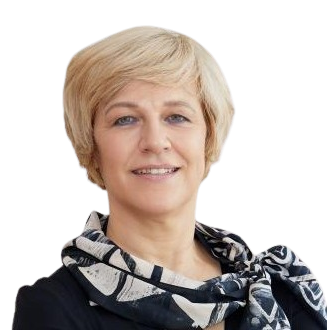
 Renate Nikolay, Deputy Director General, DG CONNECT, European Commission
Renate Nikolay, Deputy Director General, DG CONNECT, European Commission Renate Nikolay is deputy director general at DG Connect. Before that, she was head of cabinet of Vera Jourova, the European commissioner for justice, consumers and gender equality. Before that, she led the Unit of interinstitutional and international relations in DG Justice between 2011 and 2014. She has also been an advisor in the cabinet of the first High Representative and Vice President Catherine Ashton where she led on the relations with the European Parliament in setting up the European External Action Service (EEAS) and on relations with Asia, in particular China. Before that, she was a member of the cabinet of Trade Commissioners Peter Mandelson and Catherine Ashton from 2004 to 2009. She started her career in the European Commission in the department for trade in November 2003 dealing with the accession negotiations of Vietnam to the World Trade Organisation and with the trade policy committee with the member states. She has also been a diplomat in the German Permanent Representation in Brussels and worked as private secretary to the German G8 sherpa in the German Ministry of Economics. Nikolay holds an M.A. as a Fulbright Scholar in Washington DC and a B.A. in law from the Free University in Berlin.
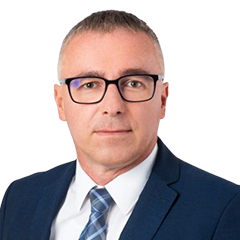
 Marko Mišmaš, Chairman, BEREC; & Director, AKOS Slovenia
Marko Mišmaš, Chairman, BEREC; & Director, AKOS Slovenia Mr Mišmaš has been serving as the Director of AKOS since 2023. His extensive professional background is rooted in over two decades of industry experience. Prior to his role at AKOS, the elected incoming BEREC Chair 2026 held various positions in telecommunications, smart metering, and the automotive industries, most recently as R&D Director in the private company Iskra Mehanizmi and before that as R&D Director in the company Iskraemeco. Marko Mišmaš holds a Master’s degree in Electrical Engineering from the University of Ljubljana.
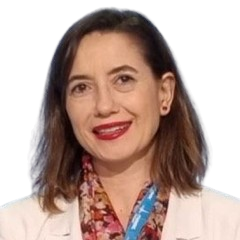
 Julia Inmaculada Criado Casado, Chair, RSPG
Julia Inmaculada Criado Casado, Chair, RSPG Deputy Director of Radioelectric Spectrum Planning and Management. State Secretariat of Telecommunications and Digital Infrastructures. Ministry for Digital Transformation and of Civil Service of Spain.
Telecommunications and Electronics Engineer with more than 17 years of experience in the telecommunications sector.
RSPG Chair.
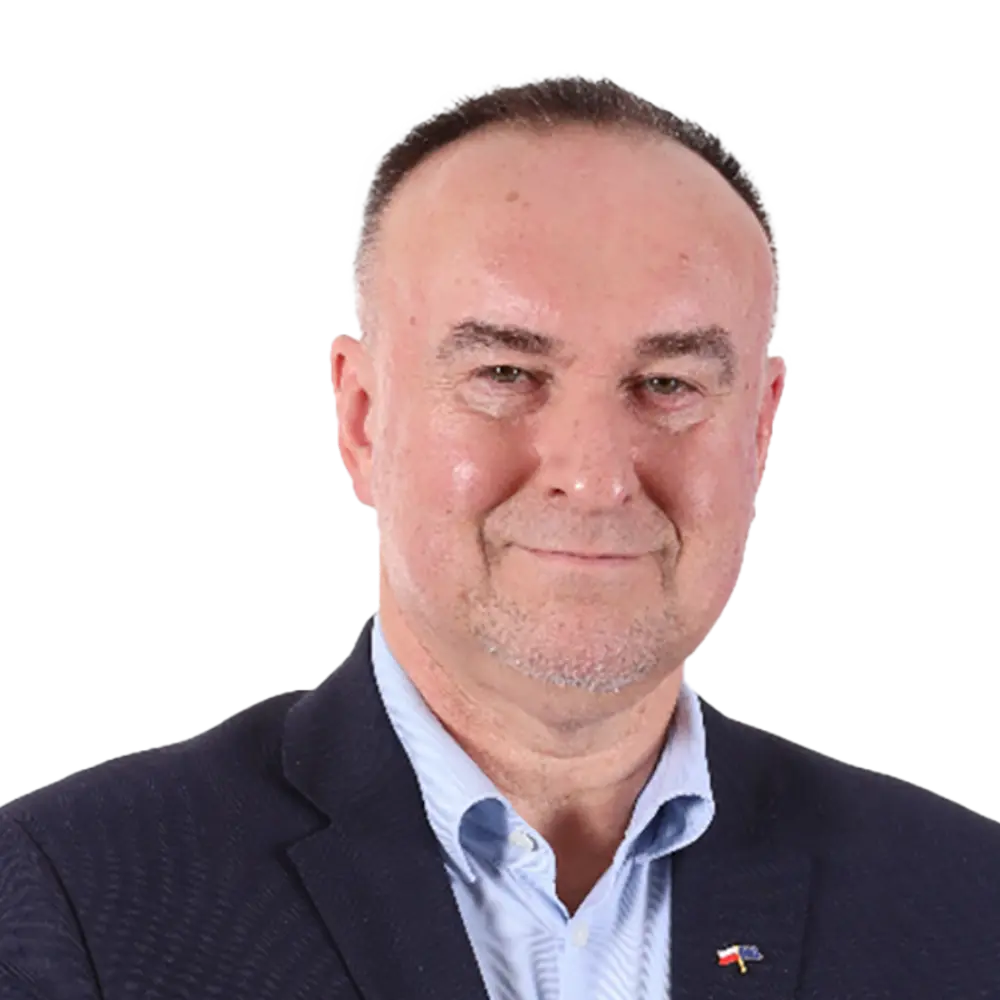
 Michal Kobosko MEP, Member, European Parliament
Michal Kobosko MEP, Member, European Parliament I graduated with a degree in management and leadership from SWPS University in Warsaw. I have had a long career in journalism. I began working in this profession in the 1990s, when I joined “Gazeta Wyborcza.” I later served as deputy editor-in-chief of publications such as “Puls Biznesu” and “Businessweek.” I was editor-in-chief of the monthly “Forbes,” the weeklies “Newsweek Polska” and “Wprost,” and “Dziennik Gazeta Prawna.” I had the honor of co-hosting RMF FM’s “Kontrapunkt” and “Newsweek,” as well as managing the news portal pulsbiznesu.pl. I have moderated hundreds of debates, conferences, and panel discussions, and served on juries for numerous journalism awards.
After leaving the media industry, I became Managing Director of the Prime Speakers speaking agency and then Head of the Washington branch of the Atlantic Council think tank. I also served on the board of the Youth Achievement Foundation and served as President of the Polska od Nowa Foundation.
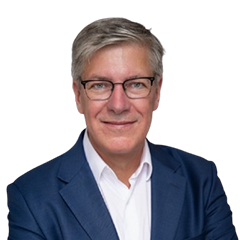
 Jan Ellsberger, Director-General, ETSI
Jan Ellsberger, Director-General, ETSI Jan Ellsberger is a globally recognised leader in the ICT industry with more than 30 years of experience with research and innovation, industry ecosystem development, standardisation, policy development & regulation, and strategy development in the telecommunications and automotive industries. From 2000-2012 he was leading Ericsson’s global standardisation operations.
He has also served in leading positions in several industry associations such as 3GPP, 5GAA, ERTICO and the Horizon Europe CCAM Association.

 Peter Stuckmann, Head of Unit, Electronic Communications Policy, Implementation and Enforcement, European Commission
Peter Stuckmann, Head of Unit, Electronic Communications Policy, Implementation and Enforcement, European Commission Before his appointment as Head of Unit he was managing the office of the Director General of DG CONNECT, Roberto Viola, coordinating the Commission’s digital policy initiatives. The portfolio included Digital Single Market, Broadband Policy, Telecoms, Media and Online Policy, the Copyright Reform as well as the EU ICT Research and Innovation Programme.
Between 2010 and 2014 he had different roles in the Commission’s telecoms policy Directorate. These included Head of Sector “Spectrum Policy”, penholder of main elements of the Commission proposal on the Telecom Single Market and the Roaming regulation, and the implementation of the EU telecom rules in Germany and Austria.
Between 2005 and 2010 he coordinated the EU R&D programme leading to the 4G mobile communications standards.
Before joining the European Commission in 2004 he has occupied several engineering and management positions in industry, academia and start-ups. He holds engineering and doctoral degrees from RWTH Aachen University, Germany.
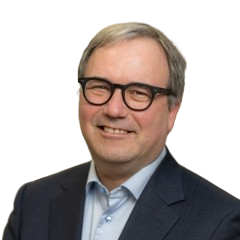
 Robert Mourik, Commissioner, Comreg Ireland
Robert Mourik, Commissioner, Comreg Ireland Robert Mourik is a BEREC Vice-Chair in 2024 and assumed the role of BEREC Chair for 2025 on 1 January. He joined the Commission for Communications Regulation (ComReg) as Commissioner in 2019 and has almost thirty years’ experience in the telecoms sector, as an industry executive and as a Government official. Prior to joining ComReg, he worked for Cubic Telecom, a new entrant in the automotive IoT space, where he was responsible for all wholesale activities. Robert spent almost 10 years in Telefonica as the European Regulatory Strategy Director at their corporate HQ in Madrid and as Strategy Director in Ireland. He also worked for Vodafone Group, as its head of their Brussels Office and in the regulatory department in Newbury, UK. In 1991, Robert began his career in the Dutch Department for Transport and Telecommunication, and from 1994 until 1999, he served as Telecom Attache at the Netherlands’ Permanent Representation in Brussels. He was a Member and Chair of the Council Telecoms Working Group in 1998, when the first telecom regulatory package was adopted. Robert was born in the Netherlands and studied Economics and Public Policy at the Erasmus University in Rotterdam and the University of Hull (UK).
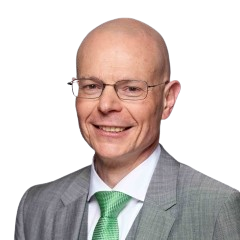
 Michel Van Bellinghen, Chairman of the Council, BIPT
Michel Van Bellinghen, Chairman of the Council, BIPT Michel Van Bellinghen chairs the BIPT Council and is responsible for the following departments: Budget and Finance, Communications, Translation, International Relations and Registry.
Michel Van Bellinghen, Master of Laws (UCL), started off at the university in 1990 as a researcher, then became an assistant under the supervision of Professor Françoise Tulkens, at the UCL Laws Centre for Criminal Law.
He became an assistant advisor at the Ministry of Justice in 1992 under the supervision of Professor Marc Bossuyt and joined BIPT in 1997. From 1999 to 2003 he held the position of expert at the private office of Rik Daems, who was the Federal Telecommunications Minister at the time, and afterwards took up the function of Assistant Head of the Private Office. From 2003 until 2009 he was nominated Member of the BIPT Council for the first time. Following this mandate he remained closely affiliated to the Council and supervised the legal department of the regulator during a number of years. He has written scientific publications. In 2013 he held a position on the Council as a Member. In January 2017 he was assigned Chairman of the BIPT Council. In January 2024, he was reappointed as Chairman of the BIPT Council.
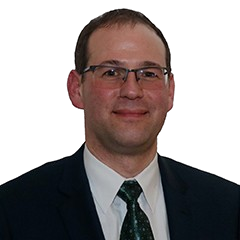
 Alexander Kühn, Head of Section International Spectrum Affairs, Spectrum Planning and Innovative Spectrum Usage, BNEtzA
Alexander Kühn, Head of Section International Spectrum Affairs, Spectrum Planning and Innovative Spectrum Usage, BNEtzA After a state exam in law at the University of Osnabrück, Mr Kühn has been working since 1998 in the area of legal internship (e.g. at Regional Court) of the Federal Network Agency Germany; changing to National and International Spectrum Regulation on different levels in 2005. Nowadays, he is the Deputy Head of Section for International Affairs and Utilization Concepts. His responsibilities cover strategic frequency utilization concepts and the transposition of those to the international level of CEPT, EU and ITU. Doing this and having been active in the preparation of three WRC’s, on national and on CEPT CPG level, Mr Kühn participated in a number of international Groups, also as Head of the German Delegation. He has also chaired several groups and subgroups in the ITU and CEPT. Since 2005, he has been responsible for the German preparation of the WRC’s and served as CEPT CPG Vice Chairman from 2010 to 2013. Mr Kühn was appointed Chairman of CPG in June 2013.

 Eric Fournier, Director, Spectrum Planning and International Affairs, ANFR France
Eric Fournier, Director, Spectrum Planning and International Affairs, ANFR France Eric Fournier is currently Director for Spectrum Planning and International Affairs in the Agence Nationale des Fréquences (ANFR), the French public agency in charge of spectrum management (www.anfr.fr).
In this capacity, Mr Fournier is responsible for preparing the revisions of the French national table of spectrum allocation and for coordinating French positions in international meetings on spectrum within ITU, CEPT and EU. He was deputy head of the French delegation for RRC-06, WRC-07, WRC-12, WRC-15 and WRC-19.
Mr Fournier has been involved in all discussions on major evolution of spectrum in Europe and was Chairman of the Electronic Communication Committee (CEPT/ECC) from 2013 to 2018 and of the European Conference Preparatory Group for the World Radiocommunications Conference 2012 (CPG-12).
He is currently the chairman of the RSPG Good Offices addressing issues of cross-border coordination and interference within the EU.
Mr Fournier is a graduate telecom engineer from SUPELEC (France).
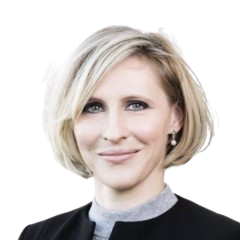
 Erzsébet Fitori, Executive Director, Smart Networks and Services Joint Undertaking
Erzsébet Fitori, Executive Director, Smart Networks and Services Joint Undertaking Since 2023, Erzsébet Fitori has been the Executive Director of the Smart Networks and Services Joint Undertaking with a mission to boost 5G deployment in Europe and foster Europe’s technology sovereignty in 6G.
Previously, she was responsible for Vodafone Group’s engagement with the EU institutions and stakeholders, heading Vodafone’s Brussels Office and as Board Director in industry organizations. Before joining Vodafone in 2020, Erzsébet was Director General of the FTTH Council Europe, the pan-European trade association representing over 160 technology innovators, network operators, and investors across the fibre value chain. As chief executive, she focused on transforming it into a growing organization, increasing its membership base, revenues, and engagement with key decision-makers.
She joined the FTTH Council from the European Competitive Telecommunications Association (ECTA), where she represented 100+ challenger telecoms network operators.
As Director of ECTA, she oversaw its public policy, regulatory, and PR activities and led ECTA’s engagement with the EU institutions, national regulators, and governments. Before joining ECTA, she was Head of Regulatory Affairs at Telenor Hungary in Budapest. In her early career, Erzsébet was an Assistant Professor in the department of European law and private international law at the University of Miskolc, Hungary.
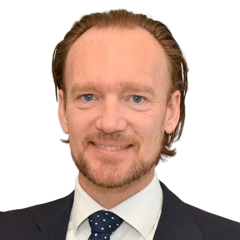
 Jonas Wessel, Director, Resource Management Department, Swedish National Post and Telecom Agency (PTS)
Jonas Wessel, Director, Resource Management Department, Swedish National Post and Telecom Agency (PTS) Jonas Wessel is Director of the Resource Management Department at the Swedish Post and Telecom Agency (PTS). He is also Chair of the Radio Spectrum Policy Group (RSPG) for the 2018-2019 period. The RSPG is a high-level advisory group that assists the European Commission in the development of radio spectrum policy. JMr Wessel holds a MSC from the Royal Institute of Technology (KTH) in Industrial Engineering and Management. He started his professional career as a strategy consultant, working mainly with business development in the telecoms and IT-sector.
In 2003, Mr Jonas joined the PTS as advisor on radio spectrum policy issues. After several positions within the Agency, including responsibility for auctions, he was assigned Director of the Spectrum Department in 2014. Jonas has been one of the driving forces behind the transformation of spectrum management in Sweden and has also been working with these issues internationally, mainly through the RSPG where he has been a delegate since 2004. He was Vice Chairman of the RSPG for the 2016-2017 period.
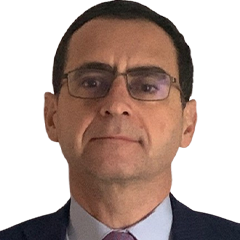
 Miguel González-Sancho, Head of Unit, Future Connectivity Systems, DG CONNECT, European Commission
Miguel González-Sancho, Head of Unit, Future Connectivity Systems, DG CONNECT, European Commission Miguel González-Sancho is Head of the Unit “Cybersecurity Technology and Capacity Building” at the European Commission and interim Executive Director of the “European Cybersecurity Competence Centre”, covering various EU files on cybersecurity including: funding for research and deployment, network of Security Operations Centres, cyber emergency fund and reserve, 5G and supply chain, certification, threat detection and response, relations with the European Cybersecurity Agency-ENISA.
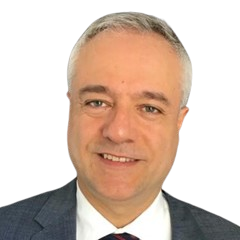
 Franco Accordino, Head of Unit, Investment in High-Capacity Networks, DG CONNECT, European Commission
Franco Accordino, Head of Unit, Investment in High-Capacity Networks, DG CONNECT, European Commission Franco Accordino is the Head of the “Investment in High-Capacity Networks” unit within the European Commission’s Directorate-General for Communications Networks, Content and Technology. The unit supports the deployment and take-up of gigabit and 5G networks underpinning the 2030’s connectivity vision and targets of the Digital Decade Policy Programme.
Before this role, Franco was the Head of the “Knowledge Management and Innovative Systems” unit delivering solutions in such fields as data analytics, participatory platforms (futurium), and artificial intelligence. He also led the “Digital Futures 2050” foresight
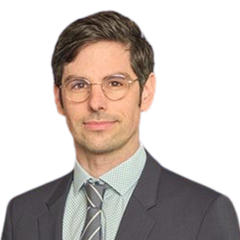
 Mark Luetzner, Policy Officer, Defence Policy and Innovation, DG DEFIS, European Commission
Mark Luetzner, Policy Officer, Defence Policy and Innovation, DG DEFIS, European Commission Mark Lüetzner is a Policy Officer in the European Commission’s Directorate-General for Defence Industry and Space (DG DEFIS), where he currently leads Service Security for the IRIS² satellite constellation. In this capacity, he manages critical security aspects for the European Union’s next-generation secure communications infrastructure, also contributing to GOVSATCOM and EuroQCI initiatives. His current mission focuses on advancing Europe’s strategic autonomy in space by ensuring the resilience and security of orbital assets and services.
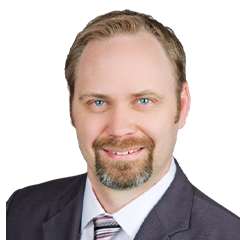
 Kevin Robinson, President & CEO, Wifi Alliance
Kevin Robinson, President & CEO, Wifi Alliance Kevin Robinson is a 15-year veteran of Wi-Fi Alliance and became CEO of the organization in October 2022. Kevin is focused on securing sufficient, harmonized global Wi-Fi spectrum, deepening engagement and cohesion across the Wi-Fi ecosystem, and evolving the organization to ensure it remains as nimble as the industry it serves.
Serving as Wi-Fi Alliance’s Vice President of Marketing for the last seven years, Robinson has led many of the organization’s most transformative initiatives and has been a leading ambassador for promoting Wi‑Fi and Wi‑Fi Alliance as a collaboration forum worldwide. Kevin oversaw branding, communications, market development, product management, program marketing, and public relations for the organization. He was also responsible for driving the development of Wi-Fi Alliance corporate strategy.
Before joining Wi-Fi Alliance in 2008, Kevin enjoyed working with early-stage technology startups on business strategy consulting and technology market research. Kevin is a veteran of the United States Army, where he served as a Captain in the Infantry. Kevin holds a BS in Computer Science from the United States Military Academy at West Point and an MBA with a specialization in Entrepreneurship from The University of Texas at Austin. He lives with his family in Austin, Texas.

 Natalia Vicente, Vice-President of Public Affairs, GSOA
Natalia Vicente, Vice-President of Public Affairs, GSOA Natalia Vicente is the VP of Public Affairs at GSOA where she works closely with the Secretary General and the CEOs of ESOA Member companies to drive forward high-level advocacy for the satellite communications sector. Specifically, Natalia focuses on the Development Agenda working with international organisations to ensure nation states understand the value of leveraging available satellite communications services to bridge digital, education and health divides in their countries.
Natalia is also a Board Member of the European Internet Forum where she represents ESOA in front of Members of the European Parliament. Natalia has over a decade of experience in the digital sector, focusing on public policy, government relations and building international partnerships.
Before joining ESOA, Natalia worked for the European Telecommunications Network Operator’s (ETNO) working on public and regulatory affairs. Prior to that, she worked for Telefonica, Telecom Italia and TagTagCity, where she was one of the first employees involved in establishing a start-up venture providing mobile solutions to municipalities and local businesses in Belgium.
Natalia is a qualified lawyer with an LLM from the University Autonoma of Madrid and holds a Master of Business Administration specialised in Marketing. She is a Spanish national, lives in Brussels and speaks 4 languages.
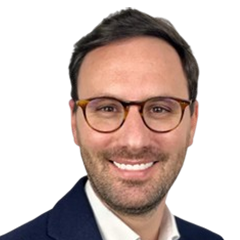
 Alessandro Gropelli, Director General, ConnectEurope
Alessandro Gropelli, Director General, ConnectEurope Alessandro Gropelli is the Director General of Connect Europe, the voice of the leading providers of connectivity networks and services in Europe. Alessandro is a technology and political affairs leader, trained in Europe and overseas. At Connect Europe, he leads the Team and represents the Association. He is also a Board member of GeSI, the Global Enabling Sustainability Initiative.
Alessandro previously served at ETNO, the former association representing leading telecom operators, in different positions. In the period 2018-2024 he was Deputy Director General: in this capacity, in 2023-2024, he curated the transformation project ETNO+, which resulted in the launch of Connect Europe. In 2023 he was named in the top 10 of Politico’s Power40 list as one of the most influential operatives in European affairs. In 2016-2018 he served as Director of Communications of ETNO and, back in 2013-2016, he was Head of Communications and Media.
Before joining the Association, between 2010 and 2013, Alessandro was European affairs advisor at Vodafone Group and vice-Chairman of the m-commerce Working Group of mobile operators’ association GSMA Europe. Prior to that, in 2009, he also worked in the Public Affairs team of Telecom Italia and as a public relations officer at the European Parliament.
Alessandro holds an Executive MBA from Copenhagen Business School (2021) and finalised executive education courses at the MIT (2018) and Berkeley Haas (2016). He graduated in public management from Bocconi University in Milan (2009) and concluded an education programme at the Hitotsubashi University of Tokyo (2008). He speaks English, Italian and French.
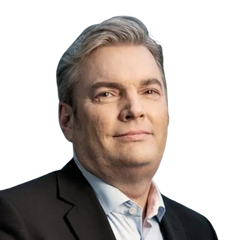
 Per Beming, Chief Standardization Officer, Ericsson
Per Beming, Chief Standardization Officer, Ericsson Per Beming is Vice President and Head of Standards & Industry Initiatives based in
Stockholm and reporting to Ericsson Group CTO. In this capacity he drives the technology
leadership work in Standardization, and industry initiatives, including open source, for the
Ericsson Group.
In previous roles Beming was responsible for Radio’s 5G program targeting 5G RAN
products and demos, in addition to driving the architecture at Business Area Networks.
Beming has been Director of RBS Systems at Development Unit Radio, Business Unit
Networks. Beming has also held a role of Expert in Radio Access Architecture at Ericsson
Research and being the head of Ericsson’s delegation to 3GPP RAN for WCDMA, HSPA and
LTE standardization.
He is also engaged in IOWN global forum as a board of director. Beming is also an
executive board of director in HAPS alliance.
Beming joined Ericsson Research in 1994 and holds an M.Sc. in Applied Physics and
Electrical Engineering (1994).
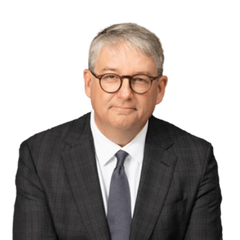
 Barbee Ponder, General Counsel and Vice President of Regulatory Affairs, Globalstar Inc
Barbee Ponder, General Counsel and Vice President of Regulatory Affairs, Globalstar Inc Barbee Ponder IV was named General Counsel and Vice President of Regulatory Affairs for Globalstar, Inc. in July of 2010. Mr. Ponder has previously served as Senior Regulatory Counsel for BellSouth Corporation in Washington, D.C. where he provided representation before the Federal Communications Commission, Congress and the White House on issues concerning 1996 Telecommunications Act, deregulation of broadband services and tax issues concerning the telecommunications industry.
Prior to joining BellSouth, Mr. Ponder practiced with the Jones Walker law firm in New Orleans, where he specialized in commercial litigation including class action defense. Mr. Ponder is responsible for all of Globalstar’s legal and regulatory matters, including those with the FCC and other international communications regulatory agencies. Mr. Ponder holds a law degree (Juris Doctor with distinction) from the Emory University School of Law, Atlanta, GA and a Bachelor of Science in Management degree from the A.B. Freeman School of Business, Tulane University, New Orleans, LA.
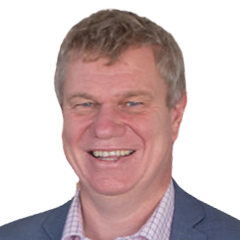
 Chris Woolford, Director, International Spectrum Policy, Ofcom
Chris Woolford, Director, International Spectrum Policy, Ofcom Chris Woolford is Ofcom’s Director of International Spectrum Policy where his responsibilities cover the UK’s international spectrum interests, especially in relation to the ITU, CEPT and EU. He has closely engaged for the UK on a number of key European regulatory initiatives in the field of electronic communications and participates in many European spectrum groups. He leads UK engagement with the ITU and led the UK delegations to WRCs in 2019, 2015 and 2012. He is currently preparing to lead the UK delegation to WRC-23.
In 2019 Mr Woolford took on the role of Chairman of the Electronic Communications Committee (ECC) of CEPT and was re-elected for a second term in 2022. He has also been a Director of the International Institute of Communications since 2018.
Mr Woolford has 25 years’ experience of working on spectrum and communications regulation, both at Ofcom and its predecessor (Oftel). He has a degree in mathematics and statistics from Manchester University.

 Darius Kuliešius, Deputy Chair of RRT Council, The Council of Communications Regulatory Authority of Lithuania RRT
Darius Kuliešius, Deputy Chair of RRT Council, The Council of Communications Regulatory Authority of Lithuania RRT Mr. Darius Kuliešius is the Deputy Chairman of the Board of Communications Regulatory Authority of Lithuania RRT and a member of the Board of Supervisory Institutions‘ Association of Lithuania.
He previously served as an Advisor to the President of the Republic of Lithuania and has held various positions within the Ministry of Transport and Communications and the Ministry of the Interior of Lithuania. Mr. Kuliešius has also served as a board member of several state-owned enterprises.
In RRT, Mr. Kuliešius‘ supervises the fields of spectrum managament, spectrum monitoring, postal, electornic communications, AI and other digital connectivity issues and takes leadership in the implementation of network resilience measures, incl. national roaming, D2C solutions as well as GNSS interference challenges in Lithuania.
He has Master‘s degree in Law and Management.
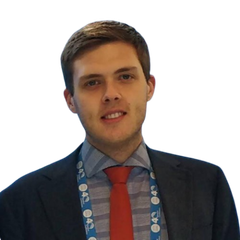
 Aleksandrs Mārtiņš Blūms, Counsellor, Research and Space at the Permanent Representation of Latvia to the European Union
Aleksandrs Mārtiņš Blūms, Counsellor, Research and Space at the Permanent Representation of Latvia to the European Union Counsellor for Research and Space, Permanent Representation of the Republic of Latvia to the European Union
Aleksandrs Mārtiņš Blūms is the Counsellor for Research and Space at the Permanent Representation of Latvia to the European Union, based in Brussels. He was involved in negotiating the EuroHPC amendment (AI Gigafactories) and is currently negotiating the next Horizon Europe research and innovation framework program. Previously, Aleksandrs worked at the Ministry of Education and Science in several policy areas, including open science and research digitalisation. He served on the European Open Science Cloud Steering Board, wrote the Latvian Open Science Strategy for 2021-2027, helping improve the governance of shared IT services for research and e-infrastructures. He was also involved in developing the concept of the Latvian Dataverse repository network, and contributed towards the development of a national Data Stewards network.
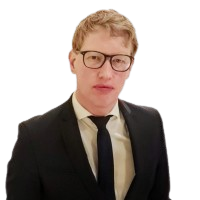
 Marnix Dekker Security Expert and Information Security Officer, ENISA
Marnix Dekker Security Expert and Information Security Officer, ENISA Dr. Marnix Dekker is Security Expert and Information Security Officer at ENISA (the European Network and Information Security Agency). Marnix works in the area of secure services and critical information infrastructures. He focuses on cloud security, smartphone security and also leads the Agency’s work on the implementation of EU-wide security regulation for telco’s (Article 13a).
He has a Master’s degree in Theoretical physics, a Ph.D. in Computer science, and a CISA certification. In his previous job he designed the protocols and processes of large national Identity Management (IdM) systems, and reviewed the deployment of a large cloud service for a critical government agency.
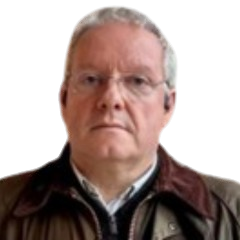
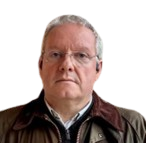 Xurxo Remuiñán Suárez Programme Manager – Future Connectivity, DG CONNECT, European Commission
Xurxo Remuiñán Suárez Programme Manager – Future Connectivity, DG CONNECT, European Commission Xurxo Remuiñán is a Policy Officer in DG Communication Networks, Content and Technology in the European Commission, where he has been working on digital policies (Future Connectivity, Digital Services Act, Broadband, Digital Strategy). Prior to the Commission, he spent seventeen years developing and implementing Information Technology and e-Government solutions in national, regional and international organizations. He holds Master degrees in public policy, business administration and telecom engineering from Princeton University, Escuela de Organización Industrial and Universidad Politécnica de Madrid, respectively.
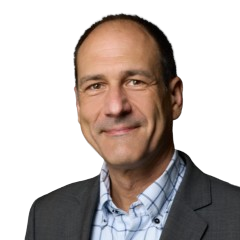
 Lazlo Toth, Head of Europe and CIS, GSMA
Lazlo Toth, Head of Europe and CIS, GSMA Laszlo Toth is the Head of Office of GSMA Europe, which is the European arm of the GSM Association – the global body that represents the worldwide mobile communications industry. In this capacity Laszlo is responsible for the day-to-day running of the GSMA’s Brussels office. He works closely with members to facilitate coordinated advocacy efforts at the EU level in order to create a policy environment that maximizes the mobile industry’s ability to invest in infrastructure and drive economic growth.
Laszlo started his professional career working at telecoms operators. Prior to joining GSMA in 2011, he spent nine years at the Hungarian public administration, including spells at the Ministry responsible for ICT and at the national telecoms regulator. Laszlo has an MSc. in economics and holds a degree in computer sciences.

 Representative, Nokia
Representative, Nokia Representative from Nokia, to be announced.

 Franziska Löw, Director Legal, Regulatory and EU Affairs, ANGA
Franziska Löw, Director Legal, Regulatory and EU Affairs, ANGA Biography to be announced.
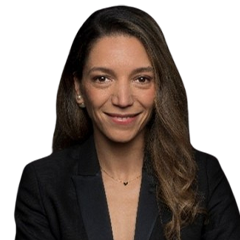
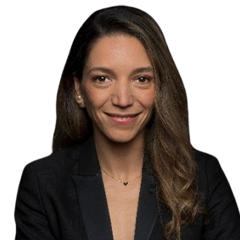 Nassima Auvray, Director, Defence and Security, Orange Business
Nassima Auvray, Director, Defence and Security, Orange Business Nassima Auvray has been the Head of Defense & Security Business Unit at Orange Business since January 2025.
She began her career at the French Defense procurement agency, Directorate General of Armaments (DGA), as an expert in military satellite telecommunications, before leading electronic warfare projects.
In 2015, she became DGA CFO’s Chief of Staff, and in 2017, she joined the Ministry of Finance, where she served as Deputy Head of the Defense Office.
In 2019, she took on the role of Innovation & Digital Advisor at the Ministry of the Armed Forces office. There, she notably led initiatives such as the creation of the Defense Ethics Committee, and the launch of the “Defense Innovation Fund” aimed at innovative companies working on technologies relevant to the defense sector (energy, quantum, AI, semiconductors, autonomous vehicles, cyber, space, etc.).
In January 2022, Nassima Auvray joined Orange Business as Chief Trust Officer, responsible for defining strategy on trust and digital sovereignty issues, starting with Cloud. She was notably involved in the launch of the joint-venture BLEU (shareholders: Orange & Capgemini).
Nassima Auvray is a chief armament engineer.
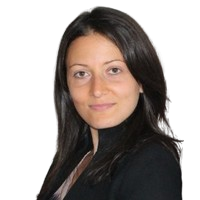
 Eliane Semaan, Director, Spectrum and Technology Regulation, Ericsson
Eliane Semaan, Director, Spectrum and Technology Regulation, Ericsson Eliane Semaan is a Senior Researcher at Ericsson. She received her M.Sc. degree in wireless systems from the Royal Institute of Technology and joined Ericsson in 2011. She is currently working on spectrum regulations and involved in different CEPT ECC groups, focusing on the introduction of 5G in Europe. She has been involved in the 3GPP standardization work for several releases of the 4G and 5G standards, focusing on physical layer enhancements (RAN1) and coexistence studies (RAN4).
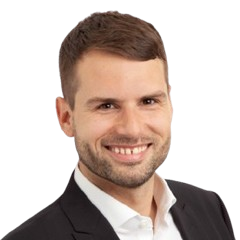
 Dragan Jovanovic, Chair, Strategy and Policy Working Group, EWIA
Dragan Jovanovic, Chair, Strategy and Policy Working Group, EWIA Dragan is Senior Director of Public Affairs, Communications & Regulatory at American Tower Europe. Since September 2024, he has chaired the Strategy and Policy Working Group of the European Wireless Infrastructure Association (EWIA).
Previously, Dragan served as Senior Manager at Deutsche Telekom, where he was part of the Public & Regulatory Affairs team, focusing on digital policy as well as mergers and antitrust matters in the ICT sector. Before joining Deutsche Telekom, he worked as an economist in the Chief Economist Team at the European Commission’s Directorate-General for Competition (DG COMP), contributing to EU merger and antitrust cases.
He holds a Ph.D. in Competition Economics and Industrial Organization from Heinrich Heine University Düsseldorf.
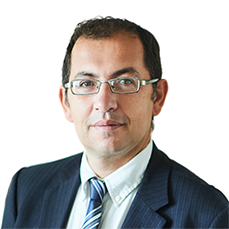
 Luigi Ardito, Senior Director, Government Affairs EMEA, Qualcomm
Luigi Ardito, Senior Director, Government Affairs EMEA, Qualcomm Luigi Ardito is currently working as Director of government affairs for Europe, Middle East and North Africa at Qualcomm and drive Qualcomm spectrum and regulatory policy agenda in Europe and MENA dealing with various government entities and industry organizations. Prior to joining Qualcomm, Luigi worked for over a decade at Sony Corporation both in Japan and in the UK. Luigi gained also professional experience at France Telecom and at the Italian Public Broadcaster RAI.
Luigi has extensive experience in the Media and Telecom industry as well as the Semiconductor Industry gained through his assignments at Qualcomm, Sony, France Telecom and RAI. He holds an Electronic Engineering Degree gained at the Politecnico di Torino in Italy and a Master of Business Administration gained at the Henley Management College in the UK.

 Pascal Rogard, Senior Vice President - European and Institutional Affairs, Orange
Pascal Rogard, Senior Vice President - European and Institutional Affairs, Orange A graduate in modern languages and economics from the University of Reims, holder of a diploma in public administration, Pascal Rogard has led the ORANGE Group office in Brussels since April 2020.
He was previously Digital Advisor at the Representation of France in Brussels and also carried out various management activities as office manager and then director at the Ministry of Economy.
He has worked on economic regulation and merger control issues at the Ministry of Economy and Finance in close collaboration with the services of the European Commission.
He also spent part of his career in the services of the European Commission at DG Trade in charge of bilateral and multilateral negotiations and thus has an excellent knowledge of Community procedures and networks.
Finally, he worked in various ministerial cabinets (foreign trade and consumption) and sat on the High Council of Merchant Aviation, Ubifrance, Cofres and the International Investment Agency. He also served as “SME Envoy” for France, rapporteur for the Economic Medicines Committee and Vice-Chairman of the OECD SME Committee. He represented France at the Bureau International des Expositions.
Languages: English, German, Spanish
Publication of articles and various activities: La Revue de la Concurrence: “The liberalisation of air transport in France and in Europe”, “The functioning of the Bundeskartelamt”, “Innovation and exports of SMEs.” Chairman of CLENAD ( END Liaison Committee), Vice-champion of France in high jump, Knight of the National Order of Merit, Auditor of the Cycle of Advanced Studies for Economic Development and of the Advanced Cycle of the ENA.
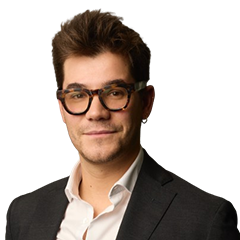
 Manuel R. Marti, Policy Director for Spectrum, GSMA Europe
Manuel R. Marti, Policy Director for Spectrum, GSMA Europe Manuel R. Marti is Policy Director for Spectrum in Europe, where he leads strategic engagement on European spectrum policy, regulatory frameworks, and industry coordination.
He joined GSMA in October 2025 from LS telcom, where he worked as a spectrum policy consultant specialising in global digital policy and regulation. His work focused on spectrum management and technological convergence, advising government and industry stakeholders worldwide on strategic regulatory and policy frameworks.
Prior to that, Manuel led the UK Spectrum Policy Forum (UK SPF) within techUK, the UK’s largest technology trade association. In this role, he oversaw techUK’s spectrum and satellite policy development process, shaped industry positions, and led engagement with the UK government and regulators.
Manuel holds an MSc in International Politics from SOAS, University of London and BA Hons in International Journalism from UCLAN.

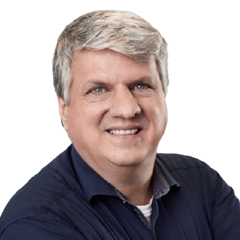 Andreas Wilzeck, Head of Spectrum Policy and Standards, Sennheiser
Andreas Wilzeck, Head of Spectrum Policy and Standards, Sennheiser Andreas Wilzeck is Head of Spectrum Policy and Standards at Sennheiser electronic GmbH & Co. KG, Germany.
He is Vice-Chair of the ETSI TC DECT, was Chair of the ETSI Evaluation Group for IMT-2020 and is an active participant in the standardisation work of various ETSI technical committees. He also participates in WRC, ITU-R, CEPT and other PMSE-related spectrum regulatory work globally.
He received the Dr.-Ing. degree from the Faculty of Electrical Engineering and Computer Science at Gottfried Wilhelm Leibniz Universität Hannover in August 2009.
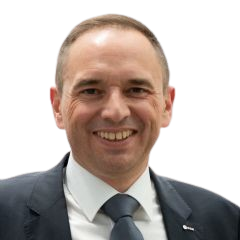
 Laurent Jaffart, Director, Connectivity and Secure Communications, European Space Agency
Laurent Jaffart, Director, Connectivity and Secure Communications, European Space Agency Laurent Jaffart is the European Space Agency’s Director of Connectivity and Secure Communications and Head of ECSAT in Harwell, United Kingdom, since 15 May 2024.
In this role, Mr Jaffart leads the ESA satellite telecommunication programme, including the implementation of the full portfolio of the ARTES 4.0 programme activities, Moonlight, Civil Security from Space, and the ESA contributions to the EU Secure Connectivity Programme, IRIS², in collaboration with the European Commission.
From France, Mr Jaffart has over 20 years of experience in the European space sector, most notably in senior leadership roles at Airbus Defence and Space.
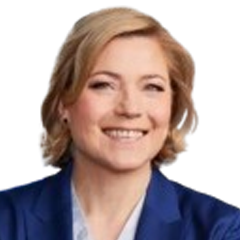
 Henna Virkkunen, Executive Vice President for Tech Sovereignty and Democracy, European Commission
Henna Virkkunen, Executive Vice President for Tech Sovereignty and Democracy, European Commission As Executive Vice-President for Tech Sovereignty, Security and Democracy, Henna Virkkunen is tasked with combatting the increasingly complex security threats facing the EU, whilst at the same time strengthening our external borders and our internal security. This goes hand in hand with her responsibility to ensure our freedoms, justice and democracy are strengthened too.
Executive Vice President for Tech Sovereignty, Security and Democracy
European Commission
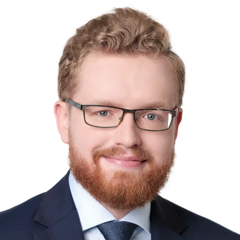
 Dariusz Standerski, Secretary of State, Ministry of Digital Affairs, Poland
Dariusz Standerski, Secretary of State, Ministry of Digital Affairs, Poland Dariusz Standerski – PhD in Economics, lawyer. Lecturer at the Faculty of Economic Sciences, University of Warsaw. From 2015 to 2023, Chief Economist and member of the Management Board of the Kalecki Foundation.
From 2019 to 2023, Director of Legislation at the Left Parliamentary Club. Author of over 200 bills, including those on economic and social issues. Co-author of the analysis “Digital State. Strategy for Poland,” which presents the state of development of digital technologies in Poland, the European Union, and internationally, as well as specific tasks and goals facing Poland in the digital sphere.
Member of the Poznań branch of the Polish Economic Society. Member of the National Board of the New Left party. He hails from Rożnów in the Greater Poland Voivodeship.
Secretary of State
Ministry of Digital Affairs, Poland
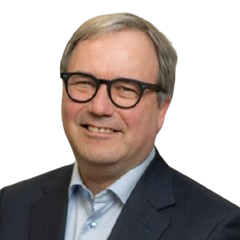
 Robert Mourik, Chairman, BEREC & Commissioner, ComReg Ireland
Robert Mourik, Chairman, BEREC & Commissioner, ComReg Ireland Robert Mourik joined the Commission for Communications Regulation (ComReg) as Commissioner in 2019 and is currently serving his second five-year term. Robert has almost thirty years’ experience in the telecoms sector, as an industry executive and as a Government official.
Prior to joining ComReg, he worked for Cubic Telecom, a new entrant in the automotive Internet of Things space, where he was responsible for all wholesale activities. Robert spent almost 10 years in Telefonica as the European Regulatory Strategy Director at their corporate headquarters in Madrid and as Strategy Director in Ireland. He also worked for Vodafone Group as its head of their Brussels Office and in the regulatory department in Newbury, UK.
In 1991, Robert began his career in the Dutch Department for Transport and Telecommunication, and from 1994 until 1999, he served as Telecom Attaché at the Netherlands’ Permanent Representation in Brussels. He was a Member and Chair of the Council Telecoms Working Group in 1998 when the first telecom regulatory package was adopted. Robert was born in the Netherlands and studied Economics and Public Policy at the Erasmus University in Rotterdam and the University of Hull (UK).
Chairman & Commissioner
BEREC & ComReg Ireland
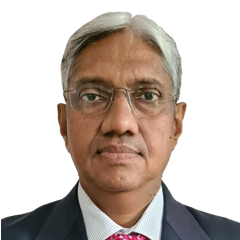
 Anil Kumar Lahoti, Chairman, TRA India
Anil Kumar Lahoti, Chairman, TRA India Shri Anil Kumar Lahoti, Chairman, Telecom Regulatory Authority of India (TRAI) is an officer of the Indian Railway Service of Engineers from the 1984 batch.
He had superannuated as Chairman & CEO, Railway Board on 31st August 2023 after a career spanning about 37 years Indian Railway. He is a graduate in Civil Engineering from Madhav Institute of Technology and Science, Gwalior, with gold medal and has master’s degree in engineering (Structures) from IIT Roorkee. He has worked in various positions in the Central, Northern, North Central, Western, and West Central Railway, as well as in the Railway Board.
Chairman
TRA India
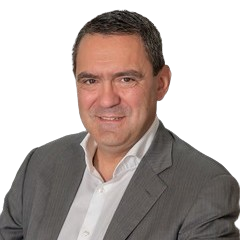
 Konstantinos Masselos, President, EETT Greece
Konstantinos Masselos, President, EETT Greece Professor Konstantinos Masselos has been appointed as the President of the Hellenic Telecommunications & Post Commission (EETT) in February 2018.
He has been elected as President of the Body of European Regulators for Electronic Communications (BEREC) for 2023 and also, Vice-President for 2022 and 2024. Moreover, he served as Vice-President of BEREC in 2019.
He is Professor in the Department of Informatics and Telecommunications of the University of Peloponnese and he served as Rector of the above University during the period 2012-2017. From 2005 to 2008, he was Lecturer in the Department of Electrical and Electronic Engineering at the Imperial College London. Also, during the period 2010-2016 he was an Honorary Lecturer in the same Department.
During the period 2001-2004, he worked in the electronic communications industry. Since 2005 he has been collaborating as an expert with various units of the European Commission. Also, he was a member of the Scientific Committee of the European Cooperation in Science and Technology (COST) from 2015 to 2017.
President
EETT Greece

 Renate Nikolay, Deputy Director General, DG Connect, European Commission
Renate Nikolay, Deputy Director General, DG Connect, European Commission Renate Nikolay is Deputy Director-General in the European Commission’s Directorate-General for Communication Networks, Content and Technology (DG CONNECT). In that role, she oversees the enforcement of the digital rulebook for platforms (Digital Services Act and Digital Markets Act), the policies on digital connectivity, data, media and audiovisual as well as international and interinstitutional relations.
Between 2014 and 2022, she was Head of Cabinet of Vĕra Jourová in her roles as Commissioner for Justice and Consumers and as Vice-President for Values and Transparency.
Prior to that Renate Nikolay was Head of Unit in DG JUST and served as member in the Cabinets of Cathy Ashton and Peter Mandelson.
Renate Nikolay started her career in the European Commission in 2003 in DG Trade after having worked as a diplomat at the German Permanent Representation to the EU in Brussels and at the Federal Economics Ministry in Berlin.
Renate Nikolay has a law degree from the Free University of Berlin (Erstes und Zweites Staatsexamen) and a Master of Laws as Fulbright Scholar from Washington, DC. She also participated in an Erasmus exchange with Grenoble/France.
Deputy Director General, DG Connect
European Commission
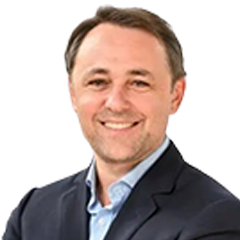
 Alin Mituța, Member, European Parliament
Alin Mituța, Member, European Parliament Alin Mituta, is from Romania and has been serving as a Member of the European Parliament since 2020 representing USR PLUS. He previously served as Secretary of State and head of Prime Minister’s Cabinet in the Romanian Government and worked as a civil servant in EU institutions. He is a co-founder of PLUS party and of the RO100 civic movement, which preceded the creation of the party.
He holds degrees in European Affairs from the Institut d’études politiques de Paris, in Political Science from the Paris Nanterre University, as well as in International Relations and European Studies from the National University of Political Studies and Public Administration in Romania.
Member
European Parliament
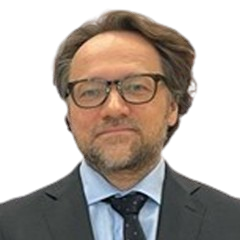
 Aleksander Soltysik, Chairman, RSPG
Aleksander Soltysik, Chairman, RSPG Chief Policy Expert at International Telecommunication Policy Unit and Telecommunications Investment Unit in Department of Telecommunications of the Ministry of Digitization. Responsible for the spectrum related issues, realization of the National Broadband Plan and Operational Program Digital Poland in the area of universal access to the broadband internet. Member of the RSPG Working Group for the Digital Single Market and Peer Review. National representative at the CEPT Conference Preparatory Group.
Chairman
RSPG

 Forum Europe
Forum Europe Forum Europe events are where people and policy meet. We have been organising policy conferences in Brussels and around Europe since 1989. Our events provide unique insights from the people behind the policy and those seeking to influence it. Our expert team develop conference programmes with impact and provide first-class event logistics. Forum Europe is more than an event management and conference production specialist. With offices in Brussels and the UK, we operate across Europe and globally. Through our international arm, Forum Global, our events cover five continents, and engage policymakers and industry at national and regional levels around the world. Our mission is to drill down to the issues that matter, creating policy events that are ahead of the curve, facilitating frank and open debate on some of the most pressing issues facing Europe and the world today.

 Amazon
Amazon 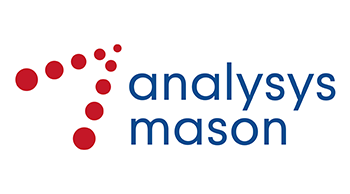
 Analysys Mason
Analysys Mason Analysys Mason is the world’s leading management consultancy focused on telecoms, media and technology (TMT). They give clarity and confidence in answering our clients’ biggest commercial questions: What strategy will best enhance value? What implementation plan will be most successful? What is the optimal positioning for five years’ time?
Analysys Mason bring together commercial and technical expertise across four interconnected consultancy practices strengthened by globally respected research.
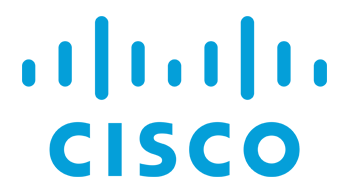
 Cisco
Cisco Cisco offers an industry-leading portfolio of technology innovations. With networking, security, collaboration, cloud management, and more, they help to securely connect industries and communities.
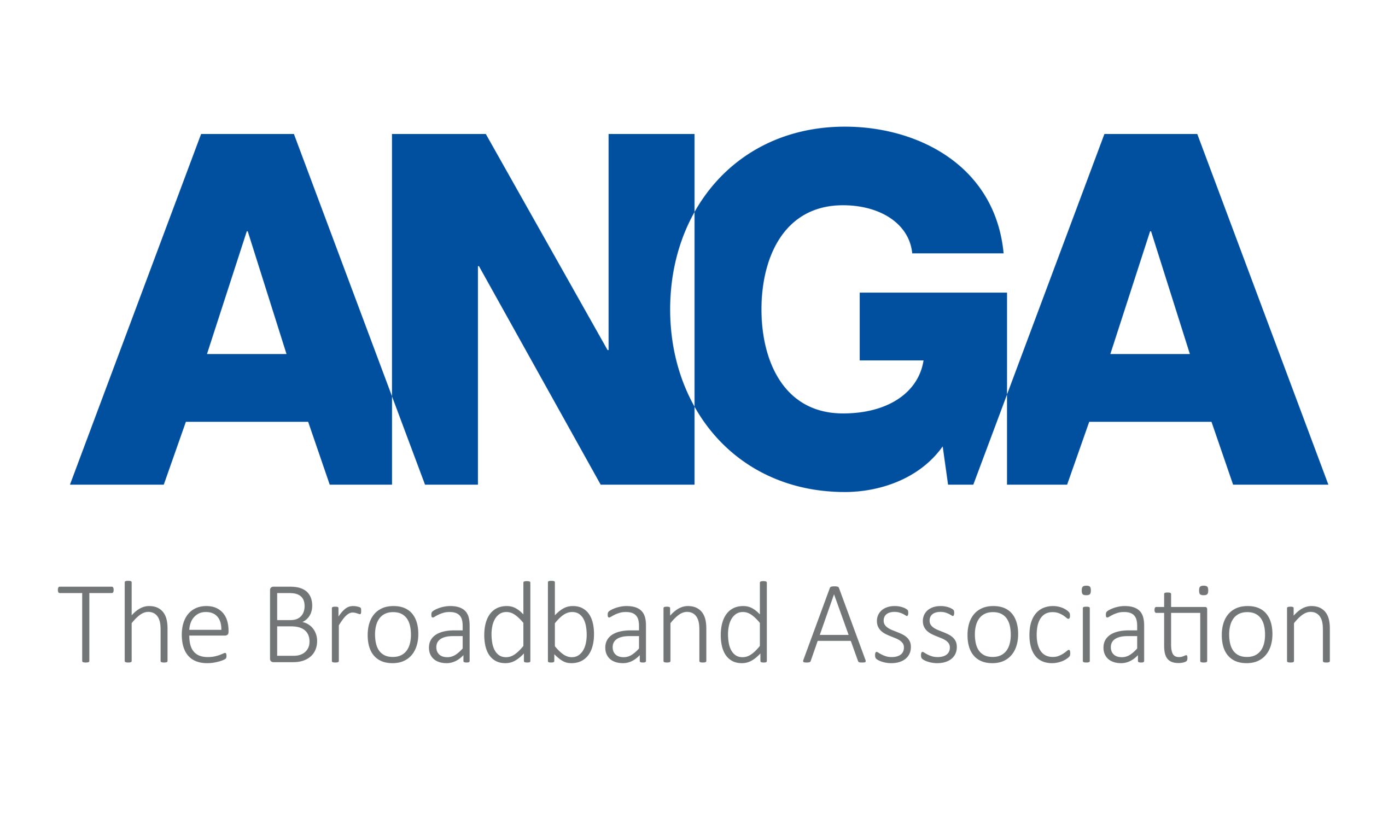
 ANGA
ANGA We represent the interests of around 160 companies in the German broadband industry . Our active members include Vodafone, Deutsche Glasfaser, Tele Columbus (PŸUR), EWE TEL, NetCologne, M-net, willy.tel, wilhelm.tel, Westconnect, and DNS:NET. They provide over 20 million households with broadband internet and television . We advocate for investment-, innovation-, and competition-friendly framework conditions with policymakers and market partners. We are also the parent association of ANGA COM – Europe’s leading congress and trade fair for broadband, media, and connectivity.
We are a global advisory firm. When the pressure is high and the stakes even higher, the world’s leading organizations turn to us.
We create value by helping clients forge and strengthen relationships with their most critical stakeholders. We are a relationship business founded on trust, expertise, and the ability to deliver exceptional results.
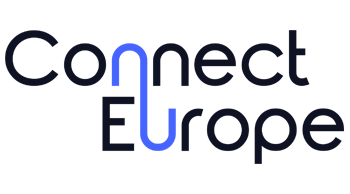
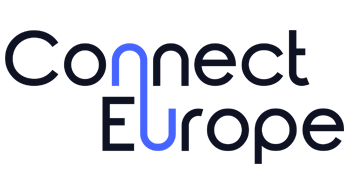 Connect Europe
Connect Europe Connect Europe is the voice of the leading providers of connectivity networks and services in Europe. Their members are at the forefront of innovation in the telecom and technology ecosystems, connecting over 270 million Europeans with cutting-edge mobile and fixed networks, such as fibre and 5G. They also deliver advanced services, ranging from first-class IT, AI and cybersecurity solutions, to entertainment and content. As the main investors in the industry, our members drive the digital transformation of the Continent , accounting for more than 70% of total telecom sector investment in Europe. Formerly known as ETNO, we stand for an improved policy and regulatory environment that enables citizens and businesses to benefit from digital connectivity and services.

 Dynamic Spectrum Alliance
Dynamic Spectrum Alliance The Dynamic Spectrum Alliance (DSA) is a global, cross-industry, not for profit organization advocating for laws, regulations, and economic best practices that will lead to more efficient utilization of spectrum and foster innovation and affordable connectivity for all.
DSA is the only global organization focused on promoting spectrum sharing innovation to get the most out of wireless resources. Our team is made up of worldwide technology experts, making the DSA the shared spectrum go-to organization for regulators and policymakers all over the world.
We advocate for policies that promote unlicensed and dynamic access to spectrum to unleash economic growth and innovation. Additionally, we advocate for a variety of technologies that allow dynamic access to spectrum.
Our focus is ensuring that the regulatory framework to support that diversity of technologies is adopted.
The DSA has a strong presence in North America and Europe, but also in Latin America, Africa, and Asia.
We are always welcoming new members to help us work towards our goals of providing dynamic spectrum access to all! If you are interested in becoming a member, please email info@dynamicspectrumalliance.org or sign up to be a member online!
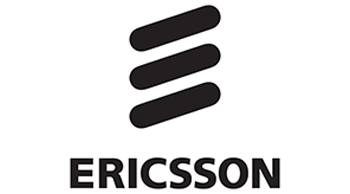
 Ericsson
Ericsson 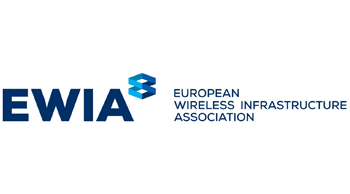
 EWIA
EWIA The European Wireless Infrastructure Association is the European trade association of wholesale wireless infrastructure providers.
Our members invest in and operate wireless infrastructure essential to the delivery of mobile voice, wireless broadband and other wireless networks.
EWIA advocates policies that encourage the network infrastructure investment and deployment necessary to make advanced wireless broadband available everywhere for consumers, businesses, health care, public safety and the countless other sectors that rely on always-on wireless connections.

 Globalstar
Globalstar Globalstar empowers its customers to connect, transmit and communicate in smarter ways – easily, quickly, securely, and affordably – offering reliable satellite and terrestrial connectivity services as an international telecom infrastructure provider and technology disruptor.
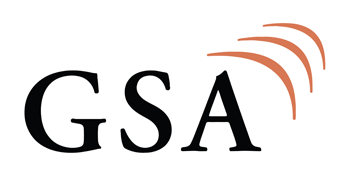
 GSA
GSA GSA (the Global mobile Suppliers Association) is a not-for-profit industry organisation representing companies across the worldwide mobile ecosystem engaged in the supply of infrastructure, semiconductors, test equipment, devices, applications and mobile support services.
GSA actively promotes the 3GPP technology road-map – 3G; 4G; 5G, – and is a single source of information resource for industry reports and market intelligence. GSA Members drive the GSA agenda and define the communications and development strategy for the Association.
The GSA Spectrum Group develops strategies and plans, and contributes studies and technical analysis to international, regional and individual country policy-makers and regulators to facilitate the timely availability of spectrum for use by mobile network operators.

 GSMA
GSMA The GSMA is a global organisation unifying the mobile ecosystem to discover, develop and deliver innovation that helps business and society thrive.
Their vision is to unlock the full power of connectivity so that people, industry, and society thrive. Representing mobile operators and organisations across the mobile ecosystem and adjacent industries, the GSMA delivers for its members across three broad pillars: Industry Services and Solutions, Connectivity for Good, and Outreach.
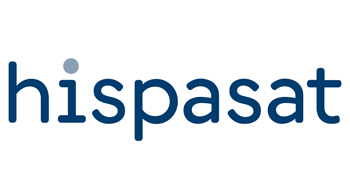
 Hispasat
Hispasat Redeia’s operator and satellite service provider, Hispasat, offers broadband and satellite connectivity solutions that include Internet access, mobility and extension of cellular networks, as well as other value-added proposals to governments, corporations and operators of telecommunications in America, Europe and North Africa . It is also a leader in the dissemination and distribution of audiovisual content in Spanish and Portuguese, including the transmission of important digital platforms of Direct Home Television (DTH) and High Definition Television (TVAD), as well as the management of transport and audiovisual signal from the Hispasat Peru teleport in Lurín.
Hispasat, made up of companies with a presence both in Spain and in North and South America, where its Brazilian subsidiary Hispamar is located, is one of the world’s leading companies by revenue in its sector and the main communications bridge between Europe and America.
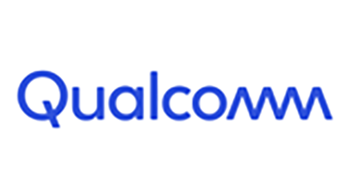
 Qualcomm
Qualcomm 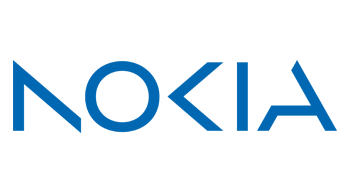
 Nokia
Nokia GSOA is a non-profit organisation established with the objective of serving and promoting the common interests of satellite operators from Europe, the Middle East, Africa and the CIS.
The Association today represents the interests of 21 satellite operators who deliver information communication services across the globe. Together ESOA Members provide invaluable communications services to the whole world including emergency communications, live broadcasting, maritime and aero communications, secure services for governments, 24-7 monitoring of industrial processes such as energy plants and a whole range of other communications capabilities that society has come to rely on.

 HPE
HPE The Hewlett Packard Enterprise Company is an American multinational information technology company based in Spring, Texas. It is a business-focused organization which works in servers, storage, networking, containerization software and consulting and support.
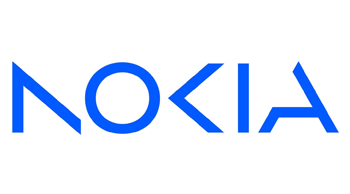
 Nokia
Nokia 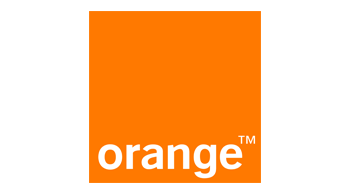
 Orange
Orange Orange have designed a range of services that enable everyone to switch to an energy solution that’s adapted to their needs and budget.
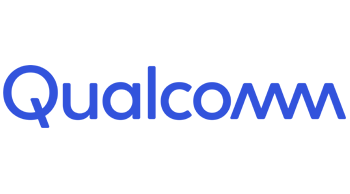
 Qualcomm
Qualcomm 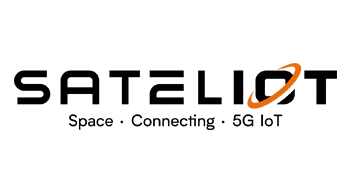
 Sateliot
Sateliot We are the first satellite operator to offer IoT connectivity over standard 5G Narrowband IoT. Our constellation serves as cell towers in space, expanding mobile operator coverage and providing global connectivity to unmodified commercial terrestrial devices wherever they are.
Digitalization has enriched many aspects of our lives, such as society, business, health, and education. However, this is only limited to 15% of the world, where terrestrial infrastructure exists.
Our mission is to enable digitalization everywhere, allowing everyone to optimize their activities in the easiest way possible, improving the quality of life for everyone and fostering innovation for tomorrow. Because we believe: A connected world is a better world!
Sateliot collaborates with all ecosystem players, ensuring the best service to the final user by leveraging the expertise and strengths of our partners. We provide our service through roaming agreements with MNOs, which means:
1. We extend their coverage and;
2. The final user can keep using their current operator’s SIM card.
We have partnered with dozens of MNOs and MVNOs providing coverage to hundreds of millions of users everywhere. We have built our virtual core with AWS, ensuring we have the most reliable, scalable, and secure core out there.
https://sateliot.space/about-sateliot-5g-satellite-iot-connectivity/
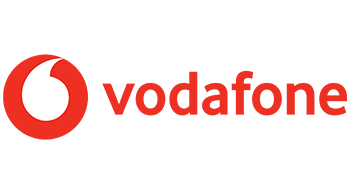
 Vodafone
Vodafone 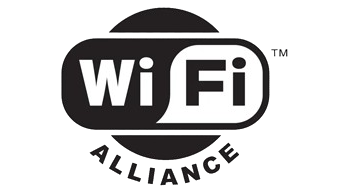
 Wi-Fi Alliance
Wi-Fi Alliance Wi-Fi Alliance ® is the worldwide network of companies that brings you Wi Fi ® . Members of our collaboration forum come together from across the Wi-Fi ecosystem with the shared vision to connect everyone and everything, everywhere, while providing the best possible user experience.
Since 2000, Wi-Fi Alliance has completed more than 75,000 Wi-Fi certifications. The Wi-Fi CERTIFIED™ seal of approval designates products with proven interoperability, backward compatibility, and the highest industry-standard security protections in place.
Today, Wi-Fi carries more than half of the internet’s traffic in an ever-expanding variety of applications. Wi-Fi Alliance continues to drive the adoption and evolution of Wi-Fi, which billions of people rely on every day.

 Cisco
Cisco Cisco offers an industry-leading portfolio of technology innovations. With networking, security, collaboration, cloud management, and more, they help to securely connect industries and communities.
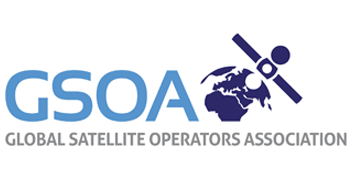
 GSOA
GSOA 
 Huawei
Huawei 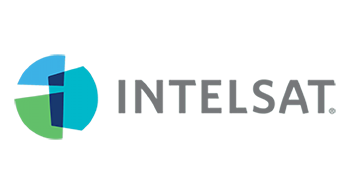
 Intelsat
Intelsat Intelsat S.A. (NYSE: I) operates the world’s first Globalized Network, delivering high-quality, cost-effective video and broadband services anywhere in the world.
Intelsat’s Globalized Network combines the world’s largest satellite backbone with terrestrial infrastructure, managed services and an open, interoperable architecture to enable customers to drive revenue and reach through a new generation of network services.
Thousands of organizations serving billions of people worldwide rely on Intelsat to provide ubiquitous broadband connectivity, multi-format video broadcasting, secure satellite communications and seamless mobility services. The end result is an entirely new world, one that allows us to envision the impossible, connect without boundaries, and transform the ways in which we live.

 Connect Europe
Connect Europe Connect Europe is the voice of the leading providers of connectivity networks and services in Europe. Their members are at the forefront of innovation in the telecom and technology ecosystems, connecting over 270 million Europeans with cutting-edge mobile and fixed networks, such as fibre and 5G. They also deliver advanced services, ranging from first-class IT, AI and cybersecurity solutions, to entertainment and content. As the main investors in the industry, our members drive the digital transformation of the Continent , accounting for more than 70% of total telecom sector investment in Europe. Formerly known as ETNO, we stand for an improved policy and regulatory environment that enables citizens and businesses to benefit from digital connectivity and services.
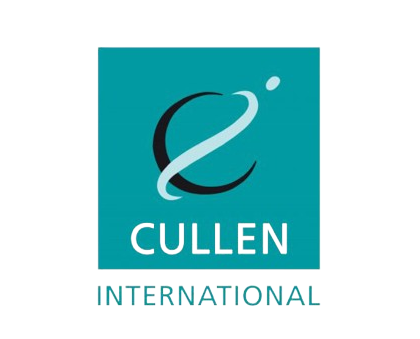
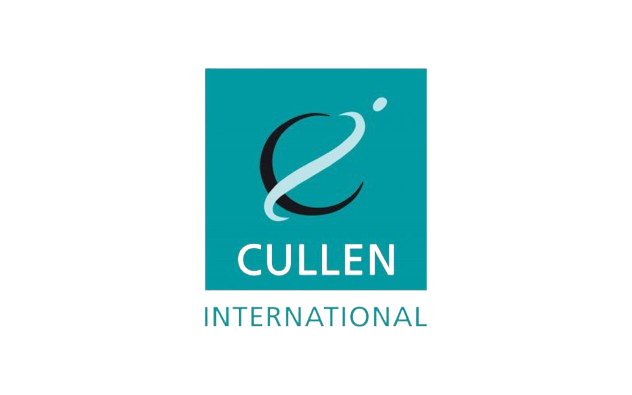 Cullen International
Cullen International Regulation made simple.
We are an independent regulatory intelligence provider.
Independent, impartial and active in 70 countries, we help organisations gain insight and clarity on digital policy, regulation and law.
We’re trusted across the globe for our wide-ranging expertise in telecoms regulation, spectrum policy and digital economy. See our datasheets for more information on our services’ geographical coverage, including the full list of countries, organisations, and topics we report on.
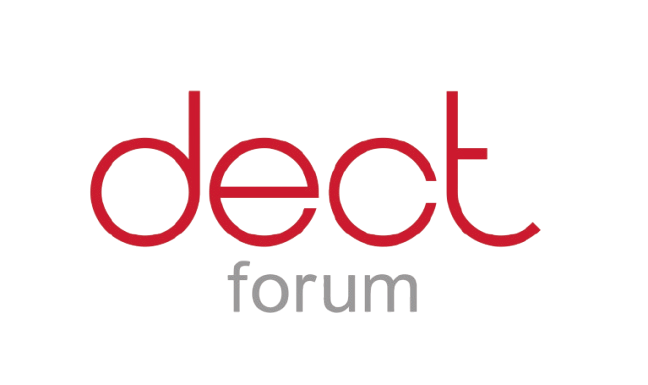
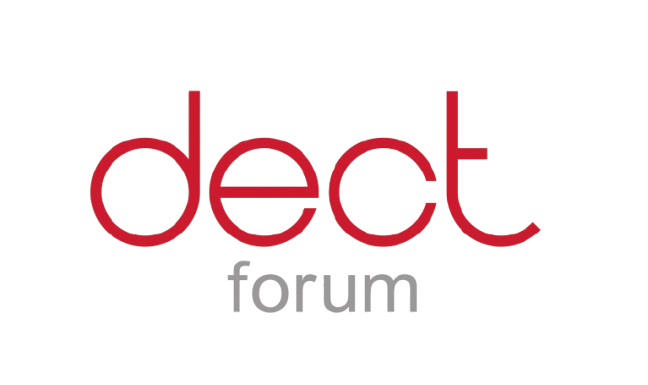 dect forum
dect forum The DECT Forum was founded in 1997 and is an international non-profit association of companies and organisations that works alongside the European Telecommunications Standards Institute (ETSI) to promote the development and adoption of the family of Digital Enhanced Cordless Telecommunications (DECT) standards.
ETSI is a non-profit standards organisation recognised by the European Union that develops globally applicable standards for information and communications technologies (ICT).
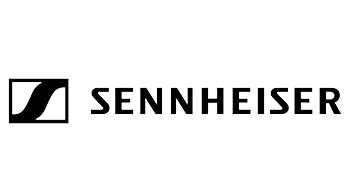
 Sennheiser
Sennheiser 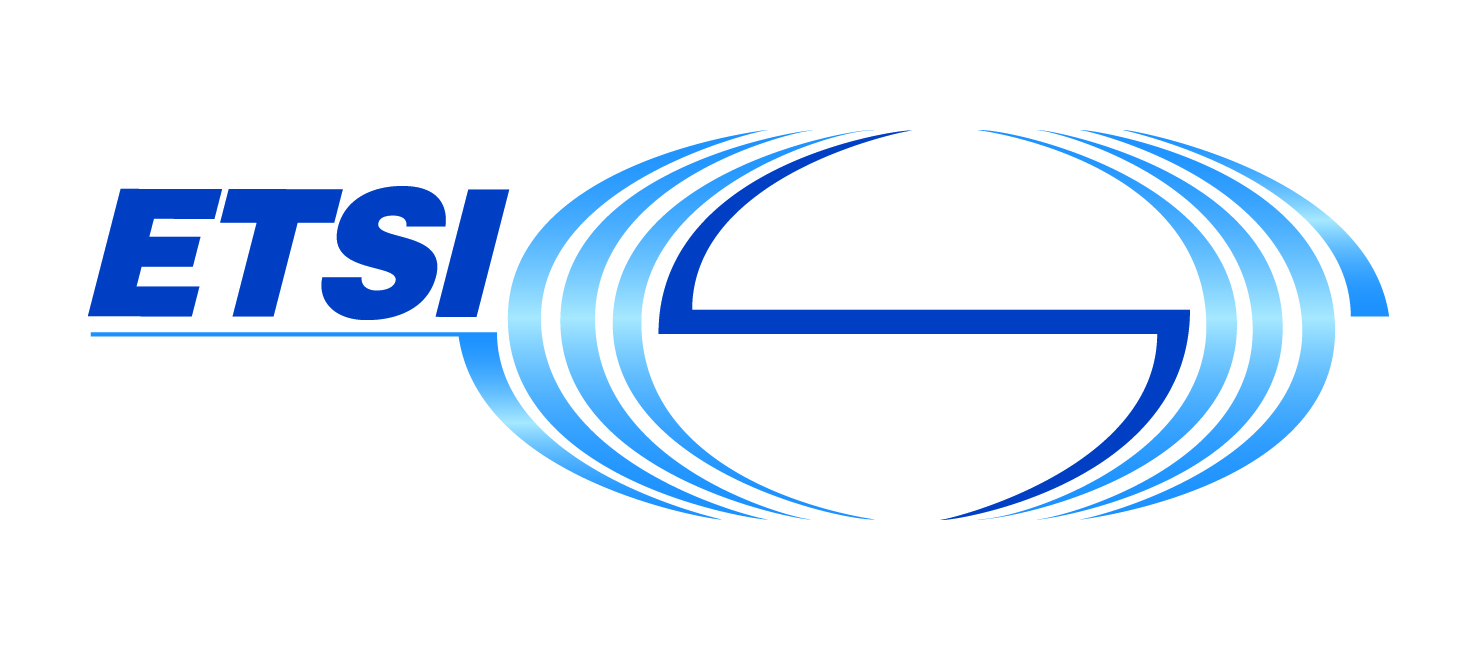
 ETSI
ETSI Wherever you are in the world, if you are involved in ICT-enabled systems, applications or services, ETSI offers you a truly inclusive environment. ETSI provides the opportunities, resources and platforms to understand, shape, drive and collaborate on globally applicable standards. ETSI standards facilitate interoperability, security, and competitive advantage across all sectors of industry and society.

 Aetha Consulting
Aetha Consulting 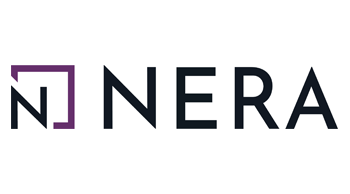
 NERA Economic Consulting
NERA Economic Consulting NERA Economic Consulting is a global firm of experts dedicated to applying economic, finance, and quantitative principles to complex business and legal challenges.
For half a century, NERA’s economists have been creating strategies, studies, reports, expert testimony, and policy recommendations for government authorities and the world’s leading law firms and corporations.
NERA bring academic rigor, objectivity, and real world industry experience to bear on issues arising from competition, regulation, public policy, strategy, finance, and litigation. NERA’s clients value our ability to apply and communicate state-of-the-art approaches clearly and convincingly, our commitment to deliver unbiased findings, and our reputation for quality and independence.
NERA’s clients rely on the integrity and skills of our unparalleled team of economists and other experts backed by the resources and reliability of one of the world’s largest economic consultancies. With its main office in New York City, NERA serves clients from more than 25 offices across North America, Europe, and Asia Pacific.
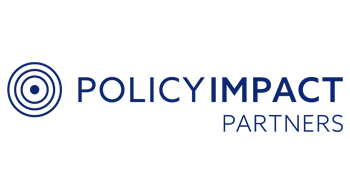
 Policy Impact Partnership
Policy Impact Partnership Policy Impact Partners (PIP) is a global consultancy platform supporting the future of digital connectivity.
PIP bring together senior experts to develop, promote, and impact policy and regulations that enable innovative technologies to positively transform economies and societies.
Interested in sponsorship of our 2027 edition?
We will have various speaking, sponsor, and wider visibility opportunities available. Should you be interested in becoming involved in our next event , please contact Dan Craft:
Please kindly note that this is a fully in-person event, taking place at the DoubleTree by Hilton, Brussels. There will be no virtual element to this event, so please only register if you are able to physically participate in Brussels.
This is a paid event, please see registration fees for each organisation type in the table below.
If you have queries regarding which organisation type you fall under, please contact us.
Corporate
Applies to: Corporate, Trade Associations, Law Firm/Public Affairs Firm
€145
€195
Reduced
Applies to: Not for Profit / NGO, National Regulator or Government Representative of Non-EU Member State
€95
€145
Academic / Student
Applies to: Academic / Student
€50
€90
Free
Applies to: National Regulator or Government Representative of EU Member State, EU Permanent Representatives, EU Commission / Parliament / Council, Accrediated Journalists
FREE
FREE
* Please kindly note the early bird rate is available until 8 January 2026
DoubleTree by Hilton
Rue Gineste 3, 1210 Bruxelles, Belgium
For more information on any aspect of this event, please contact Chanice Stones using any of the details below.

Chanice Stones
Event Manager
Forum Europe
futureconnectivity@forum-europe.com
+44 7701 218397
Sign up to receive updates on our upcoming events. We will only send you emails about conferences and topics that interest you, and you can unsubscribe at any time.
The Future Connectivity Summit, 2026 has now come to a close. With almost 400 delegates in attendance across the two days, and over 66 expert speakers – the summit provided a neutral platform to reflect on Europe’s connectivity journey and the road ahead.
Click here to keep informed for 2027
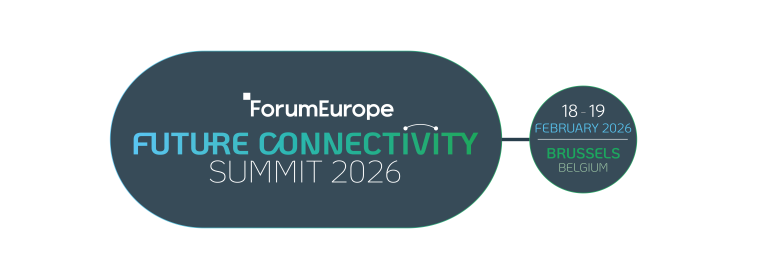
Reflecting the evolving shape of Europe’s digital landscape, The Future Connectivity Summit Europe merges The European 5G Conference and The European Connectivity & Competitiveness Summit to provide a new, single flagship platform for connectivity, policy, and innovation.
Bringing together leaders from across industry, government, and technology, the Summit will be the definitive platform to shape the next generation of European connectivity and digital policy.
Building on the legacy of its predecessors, it will continue to spotlight the 5G rollout and the road to 6G, while expanding its focus to explore emerging technologies, new business models, and the pivotal role of the Digital Networks Act in driving Europe’s competitiveness, powering innovation, and reinforcing strategic autonomy.
For more information, please contact Chanice Stones on chanice.stones@forum-europe.com